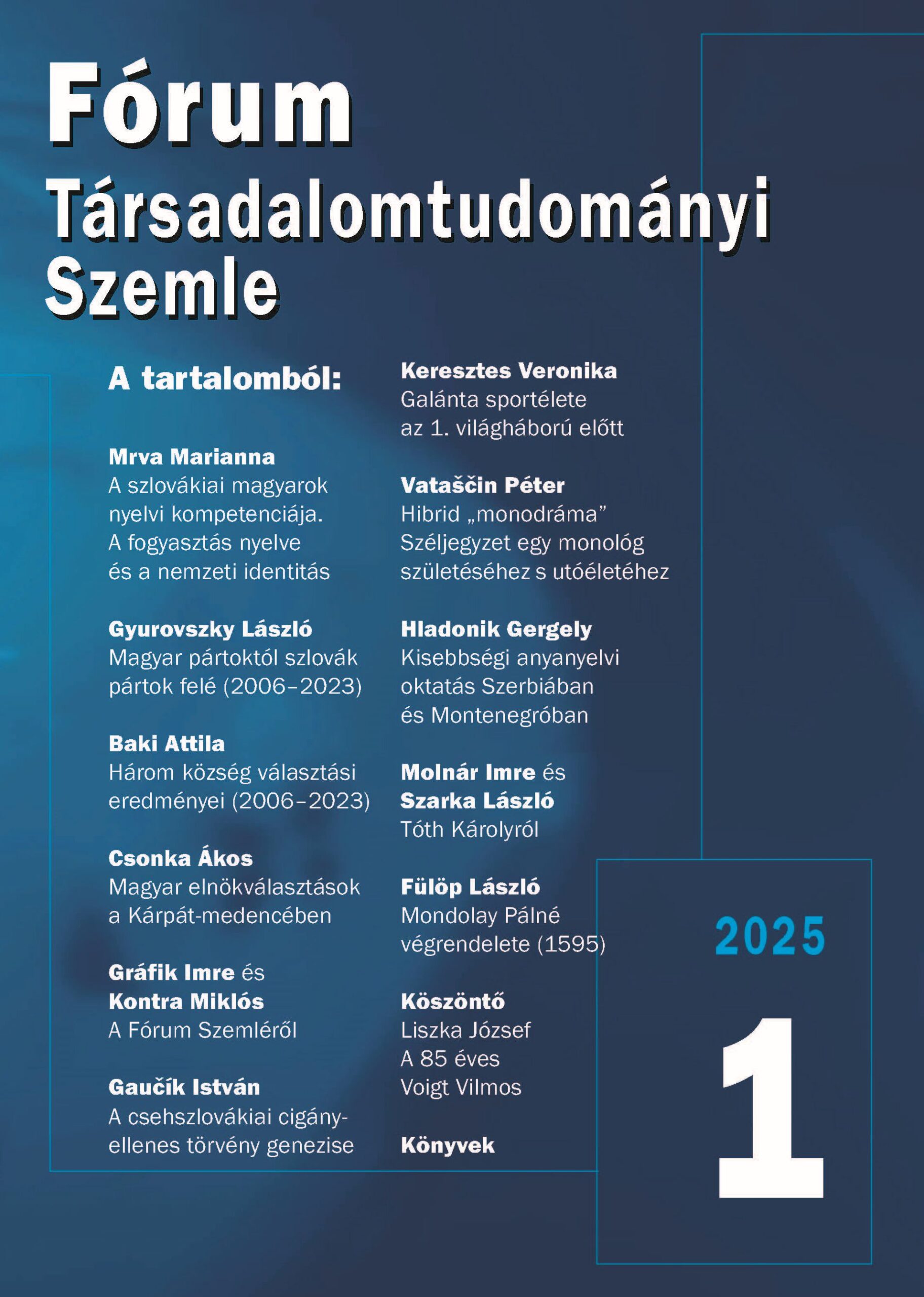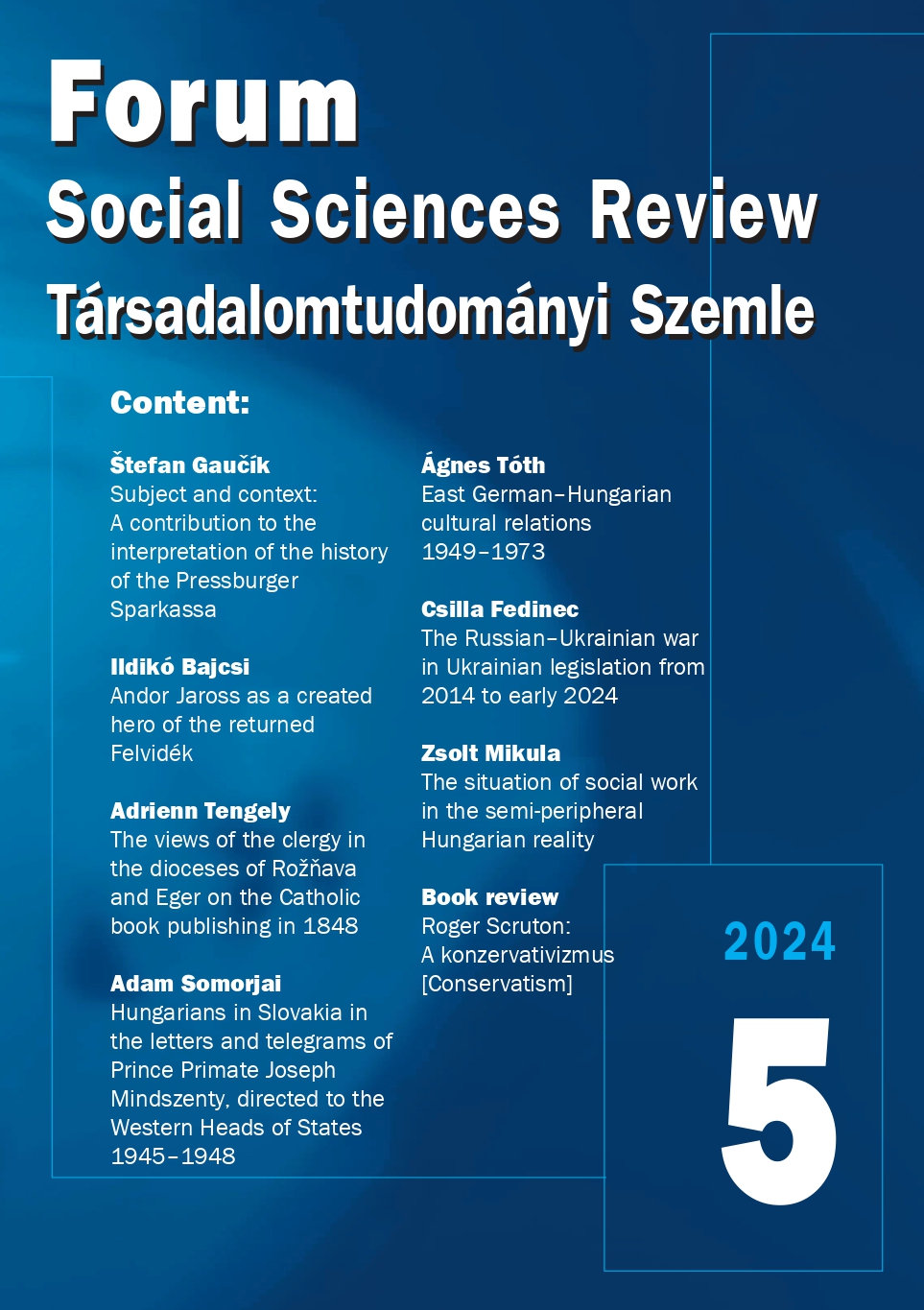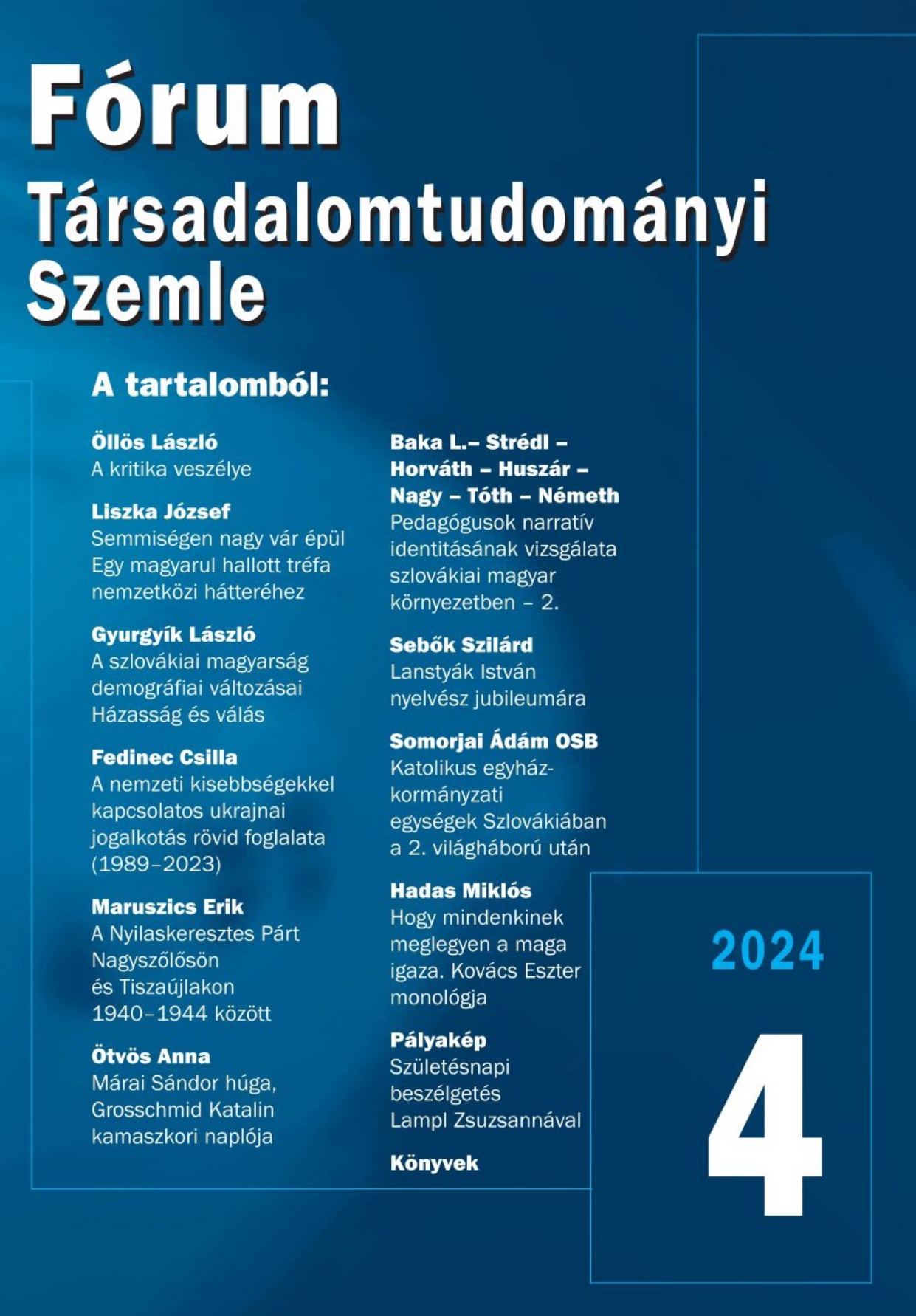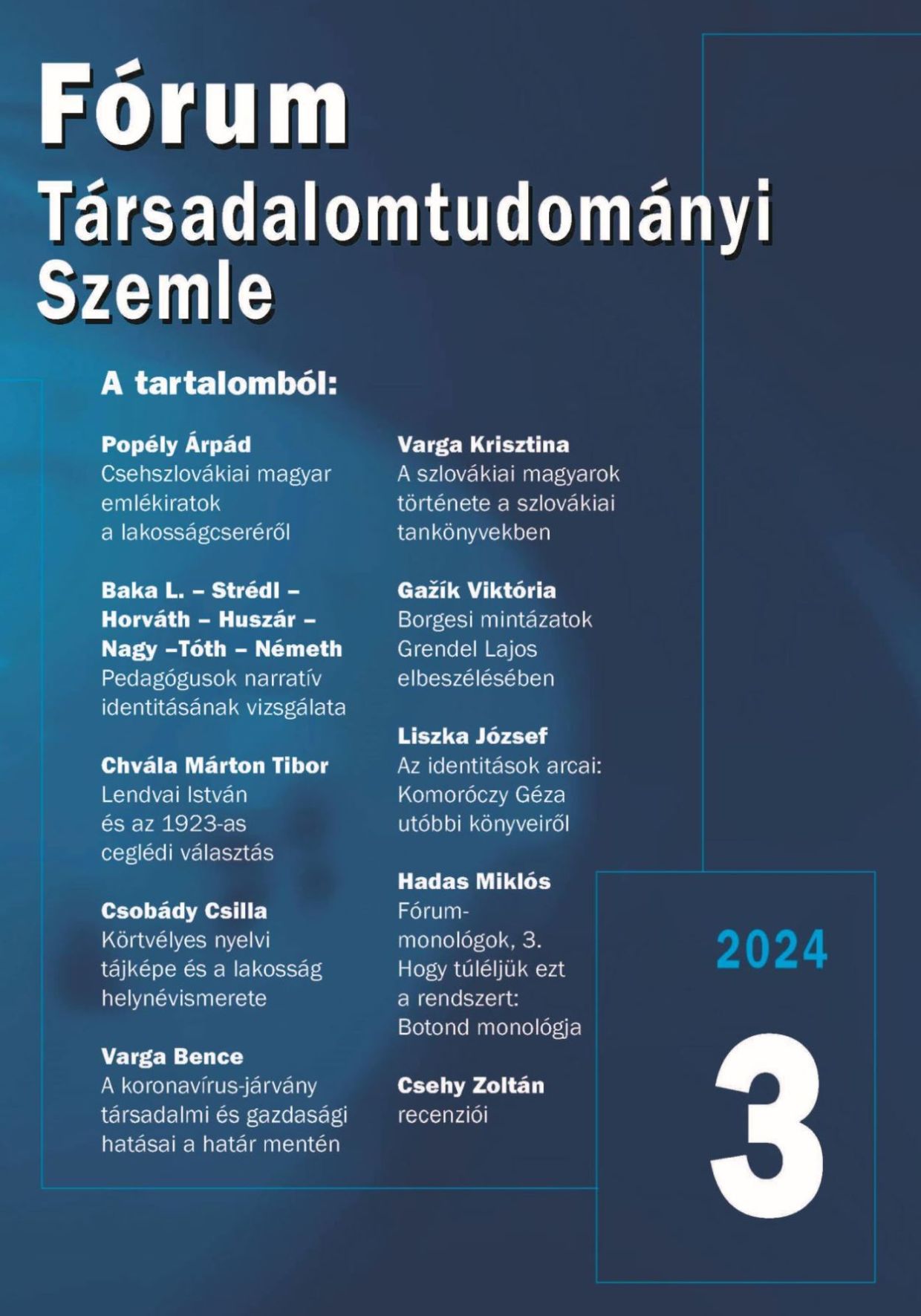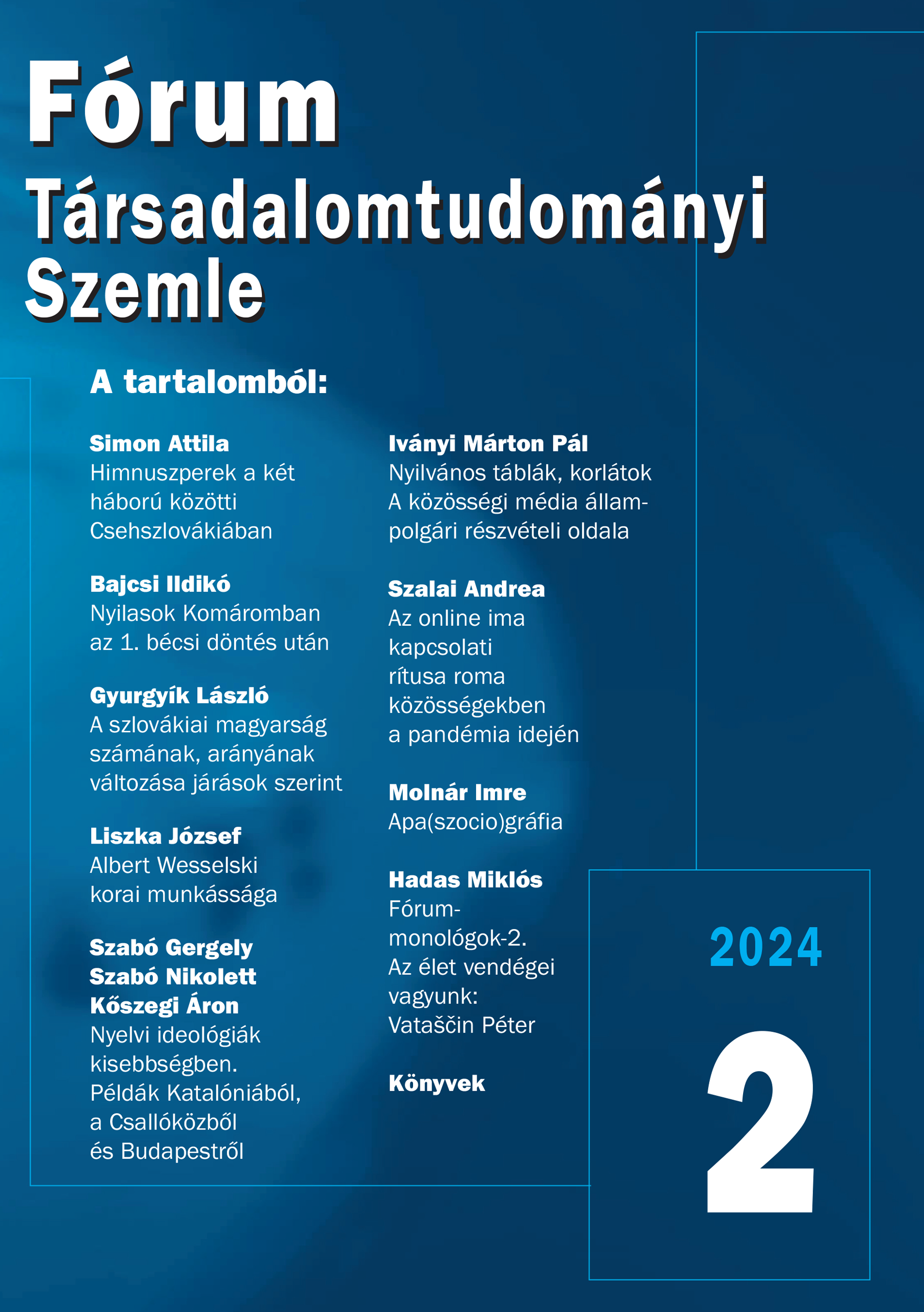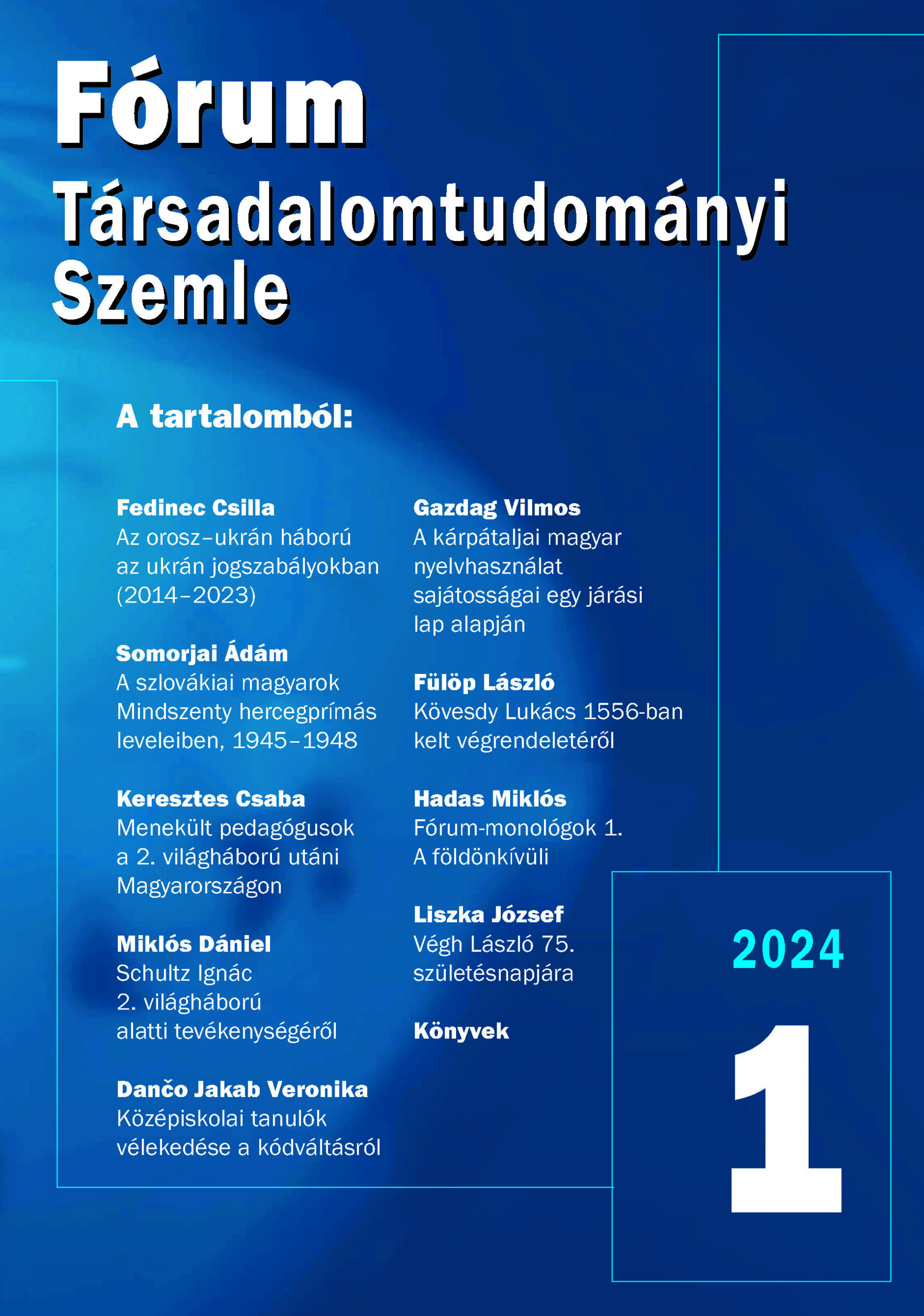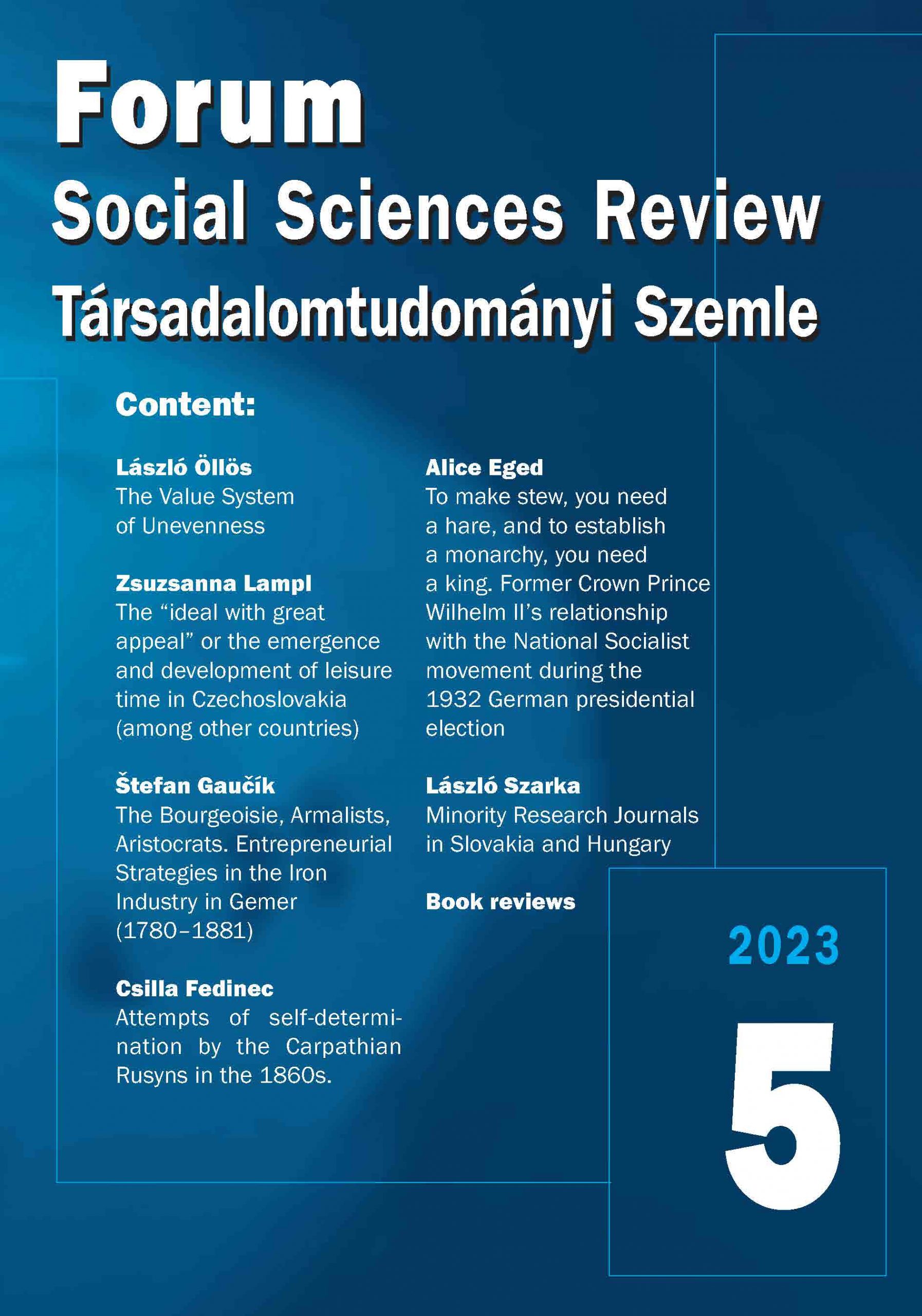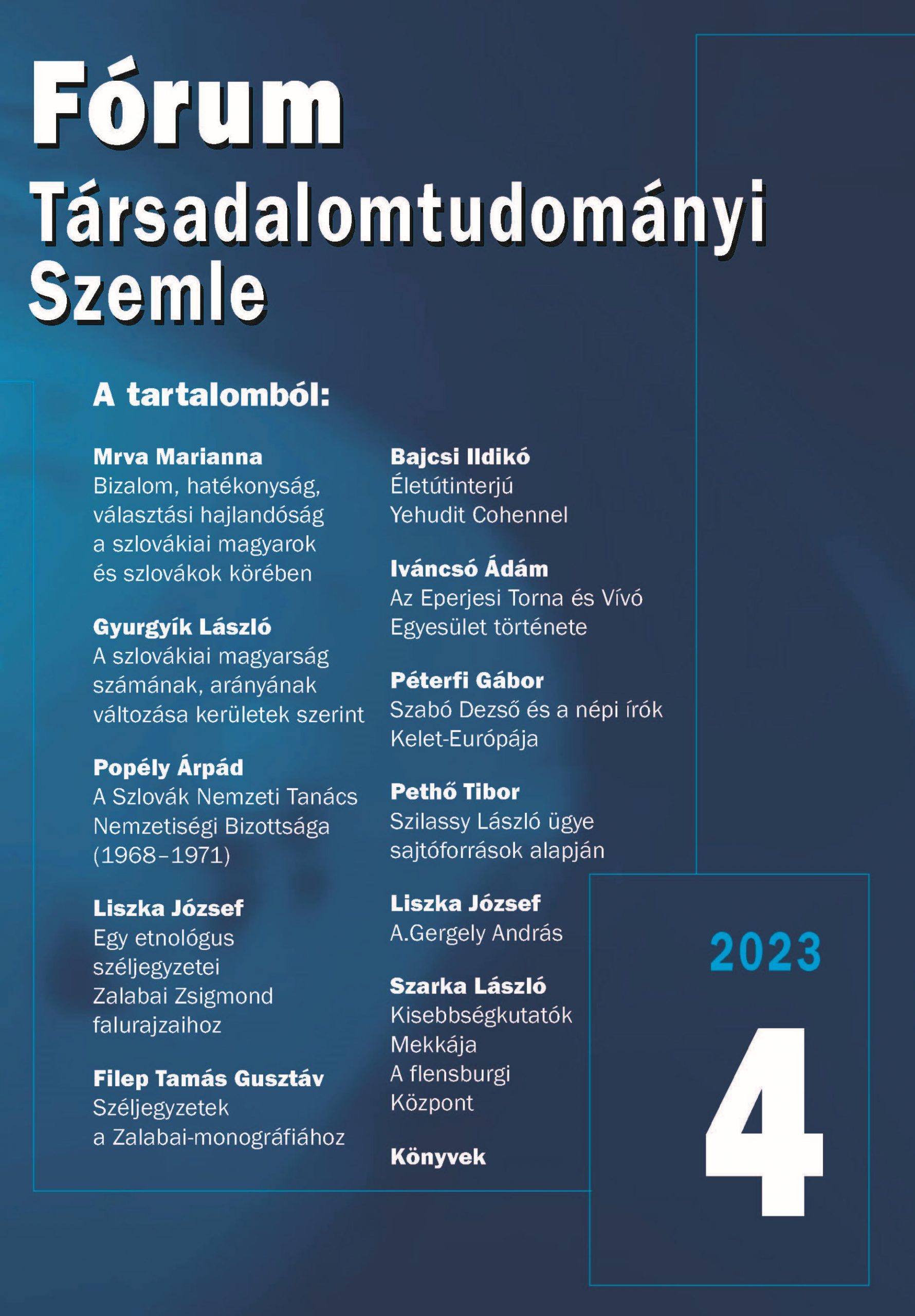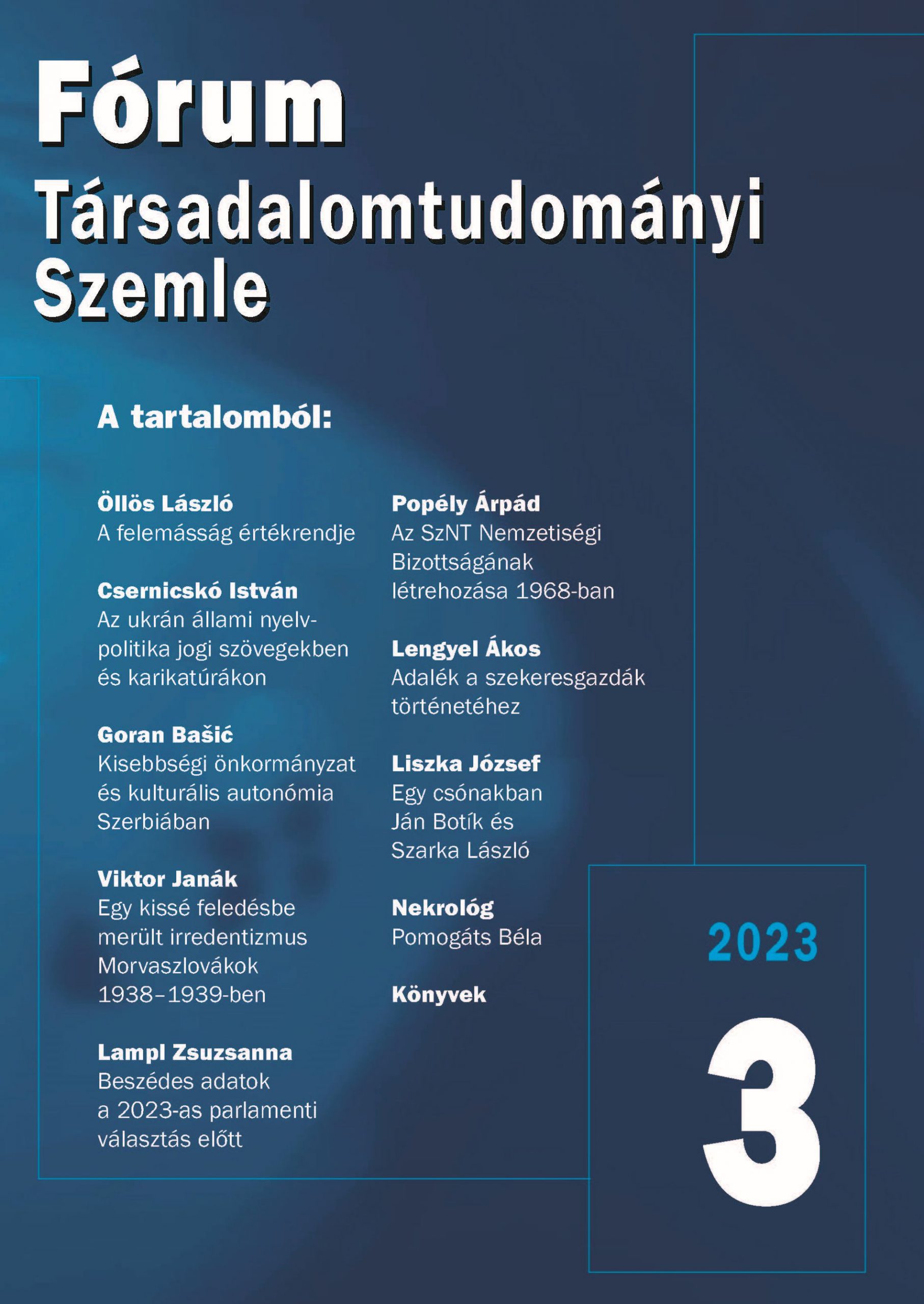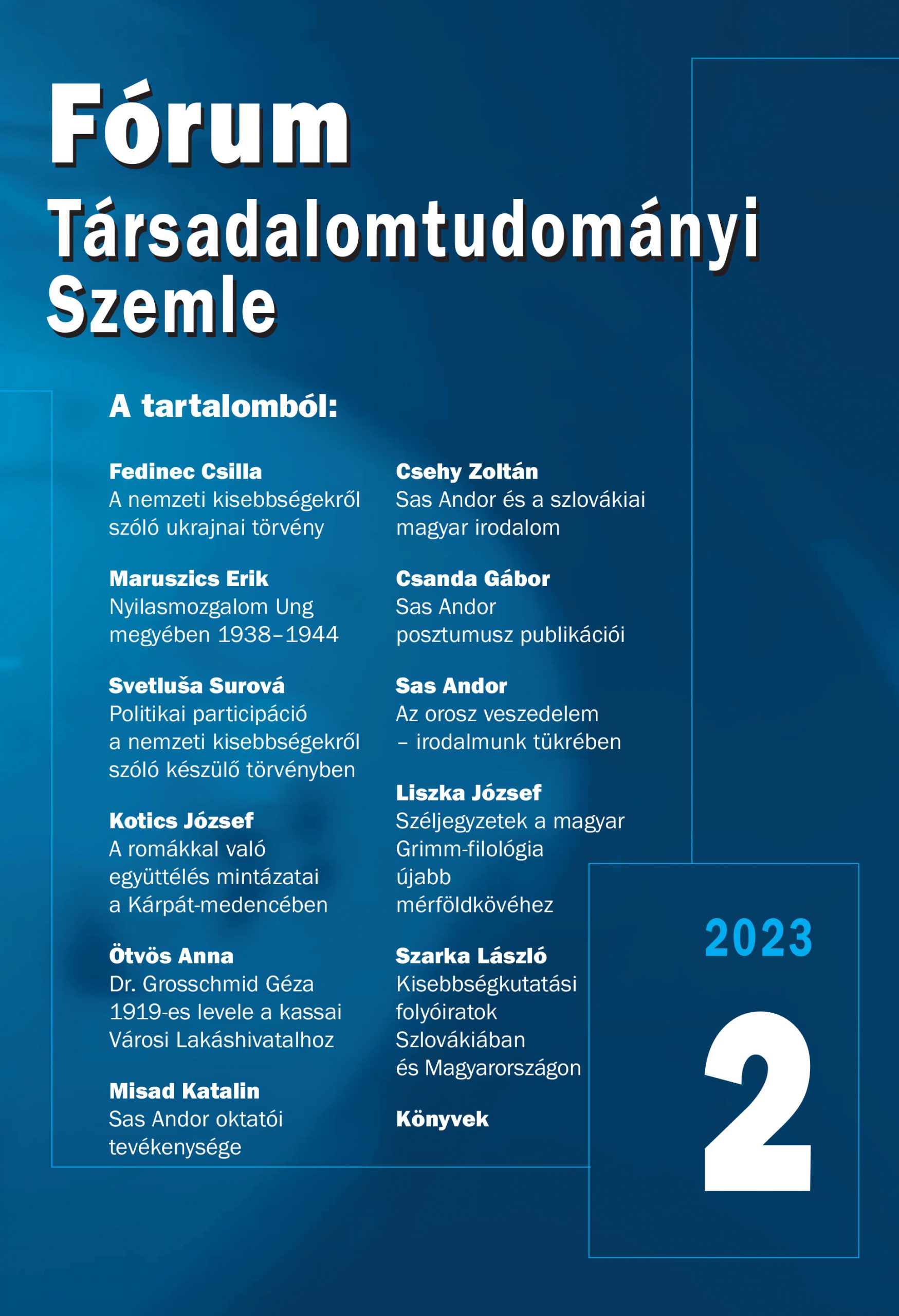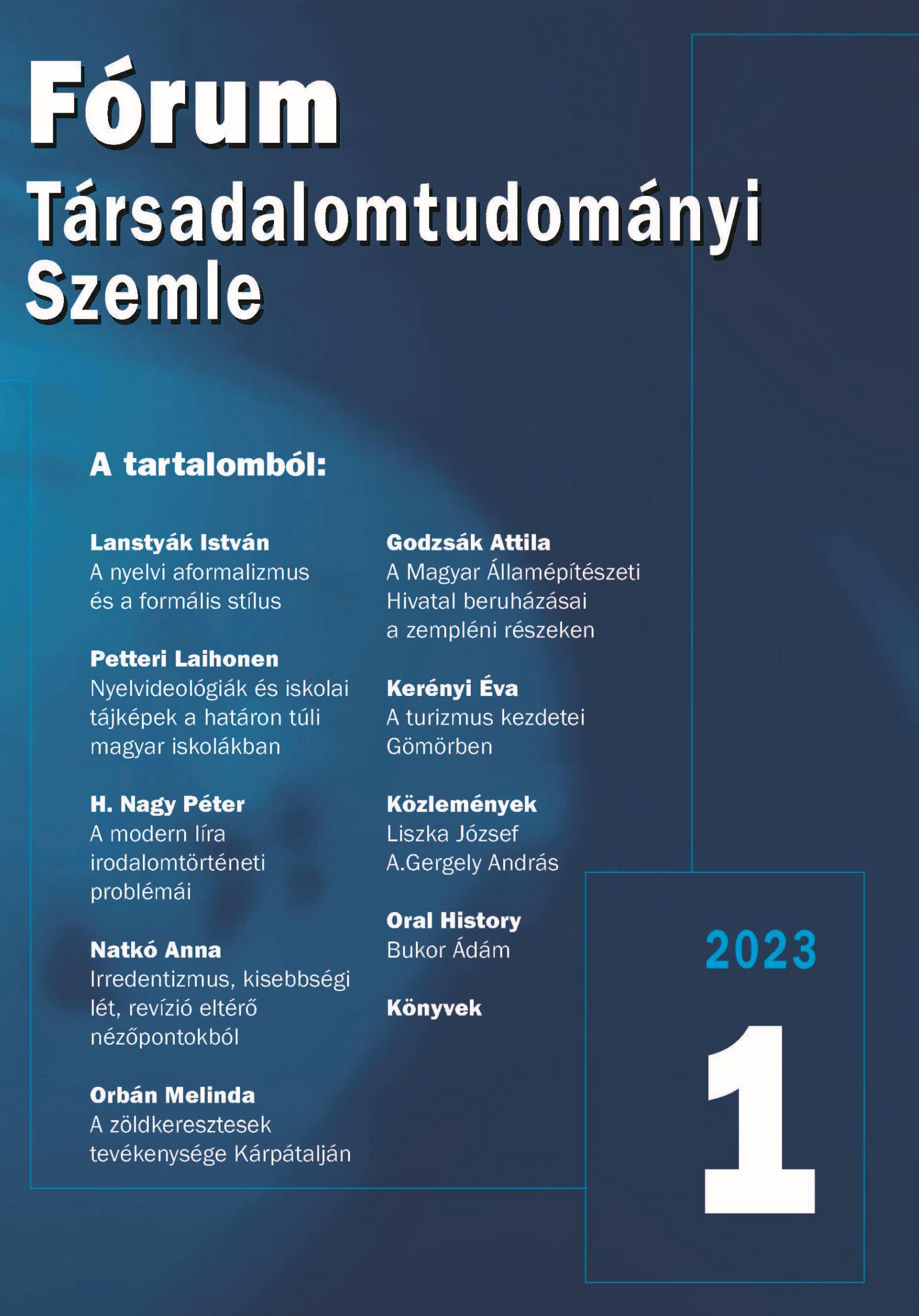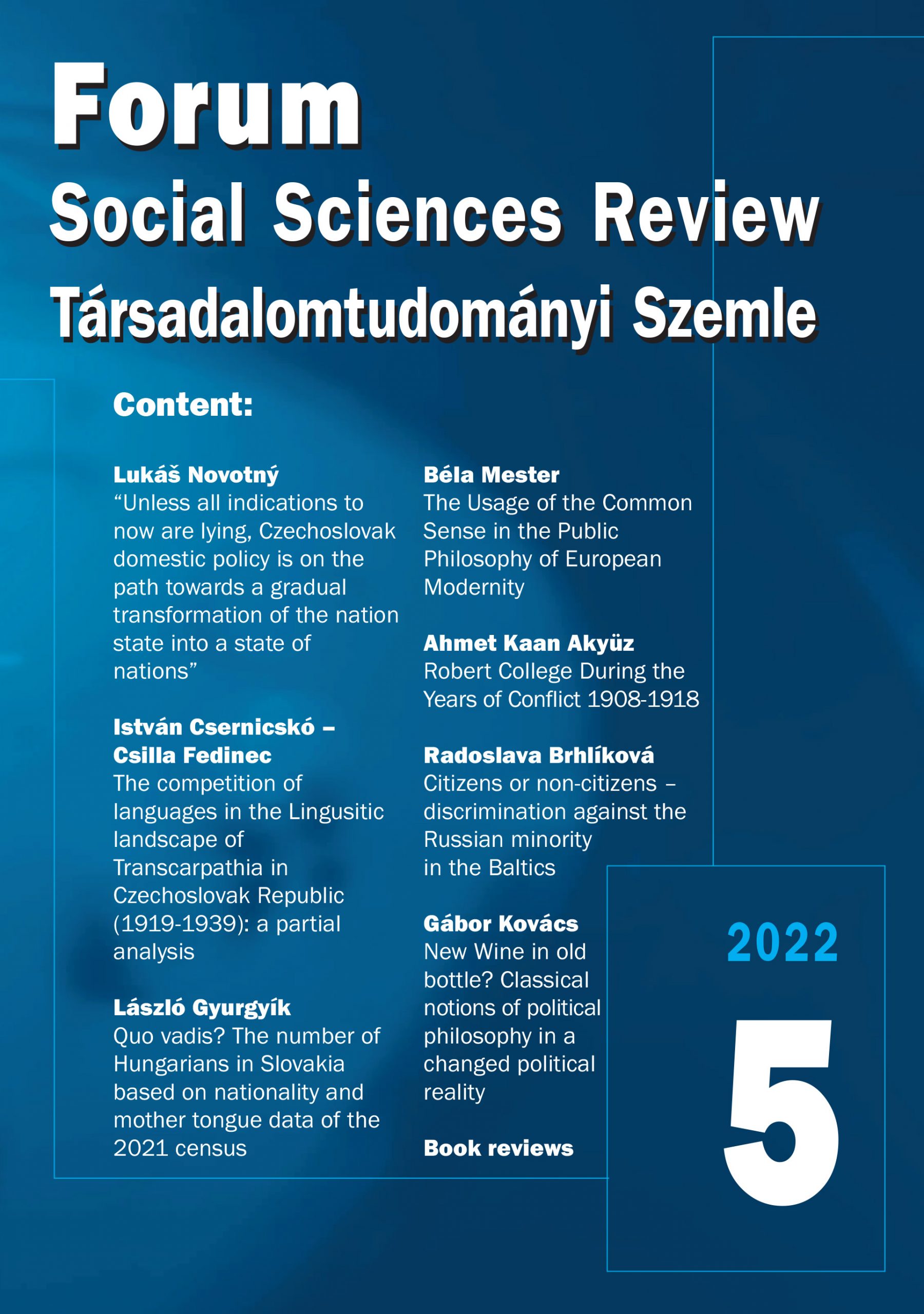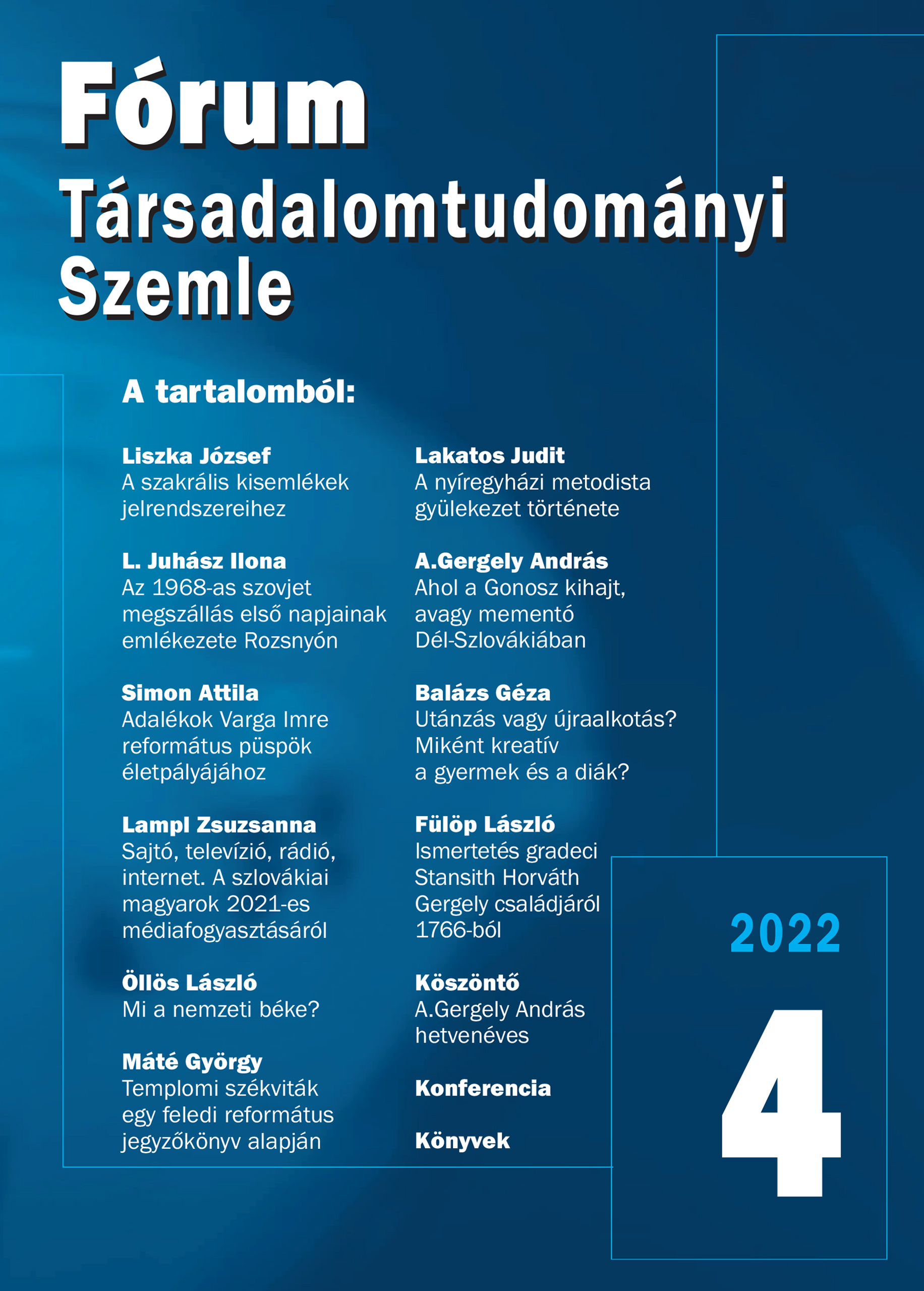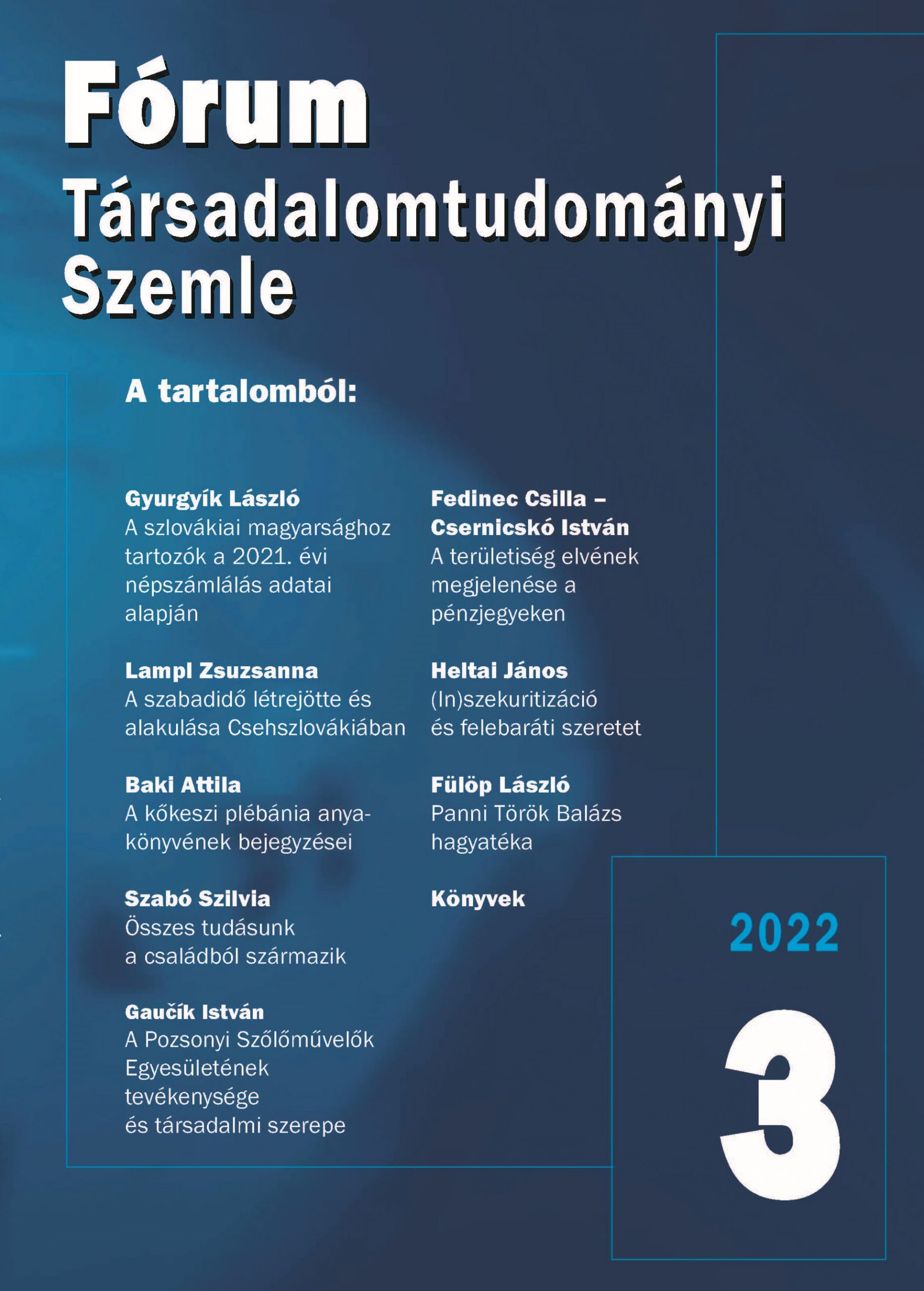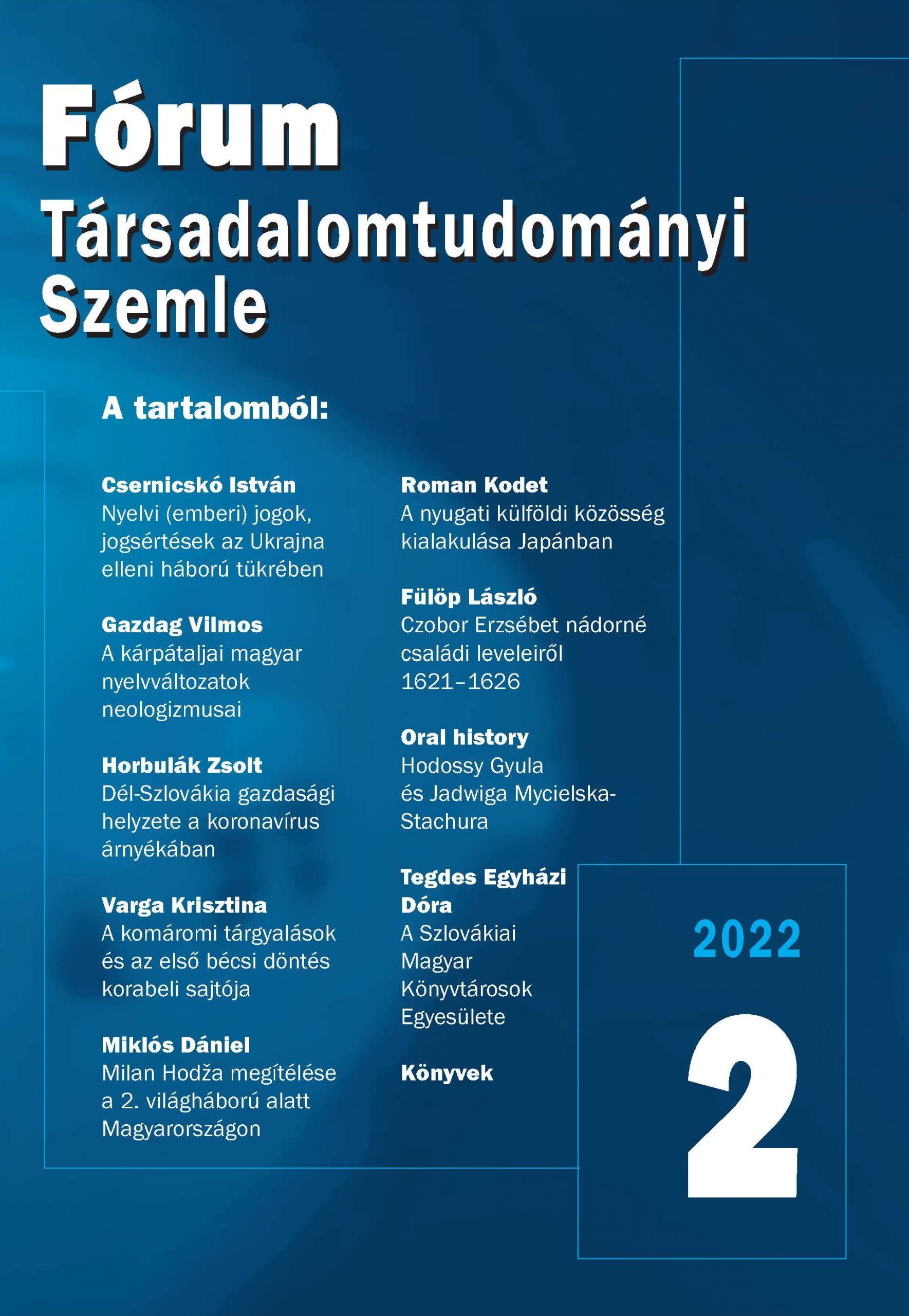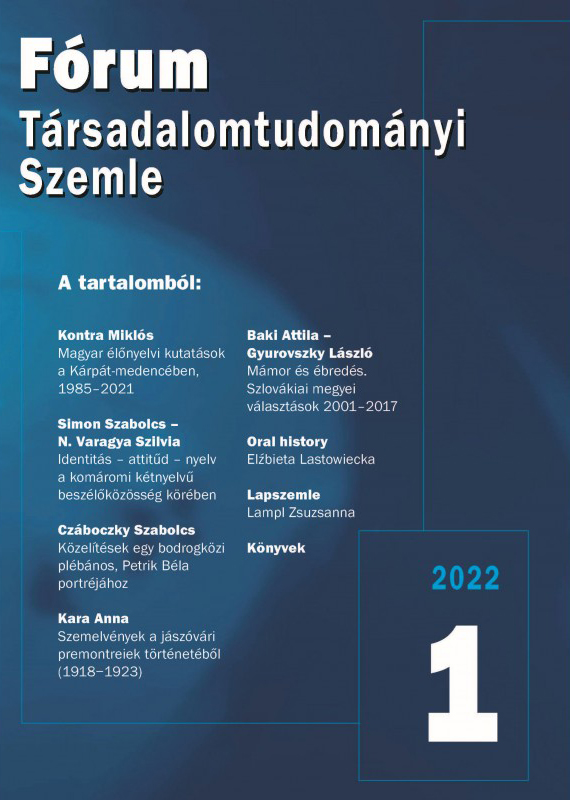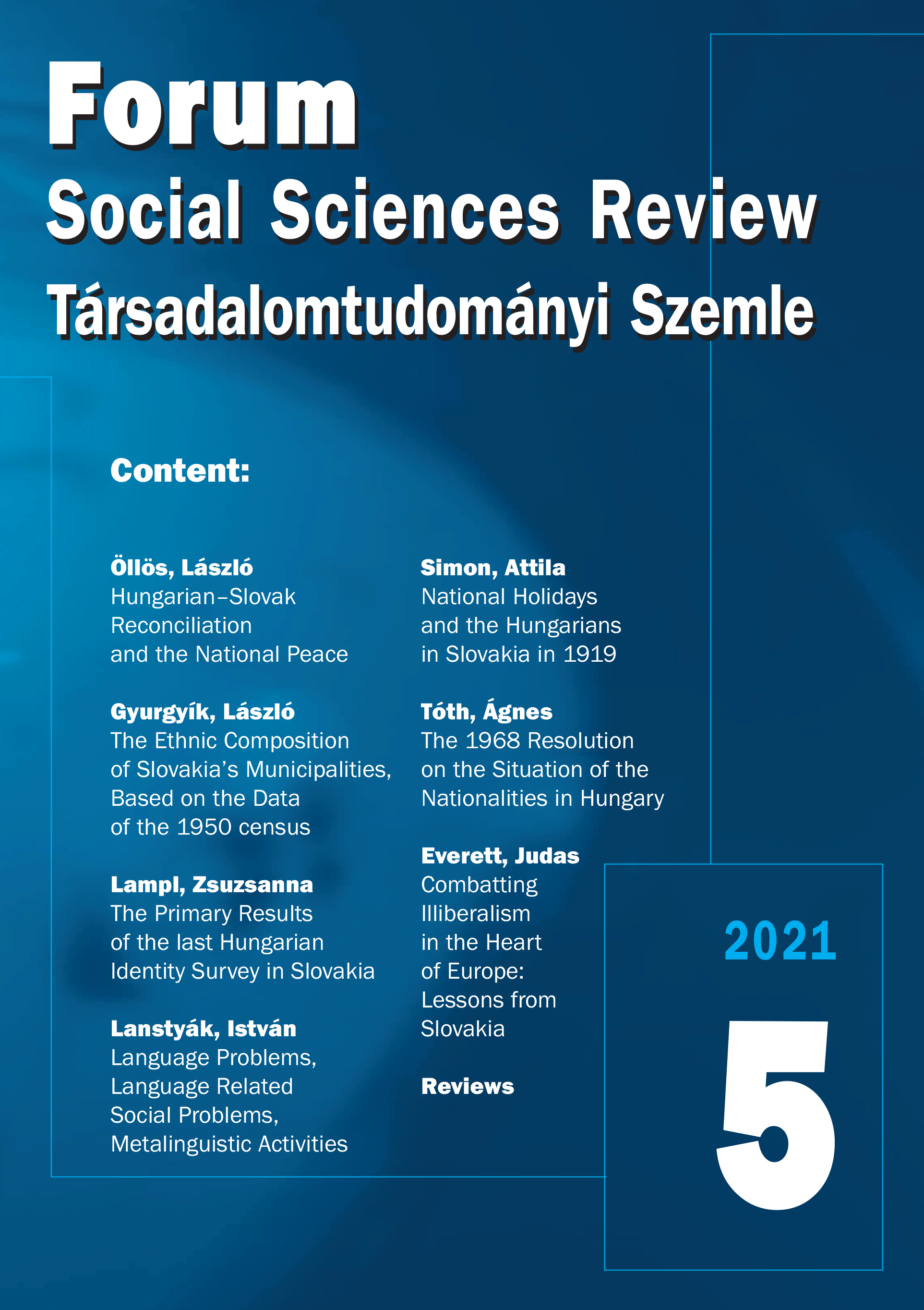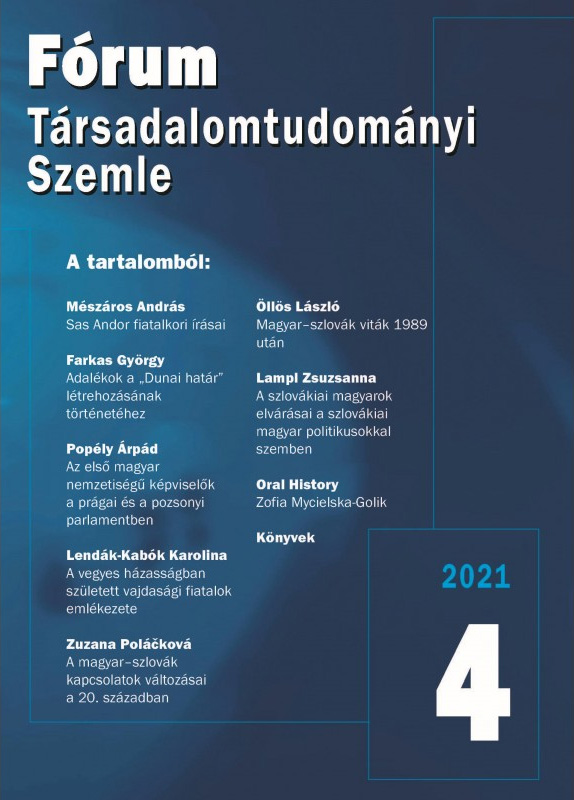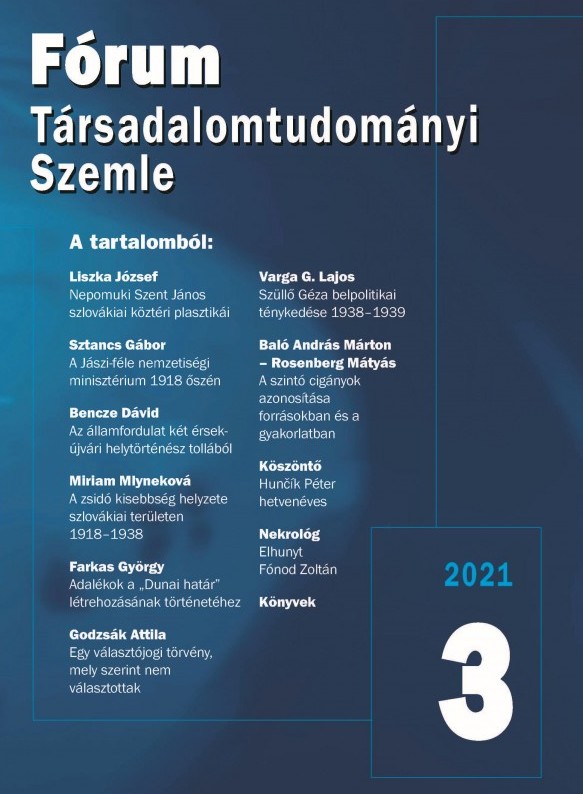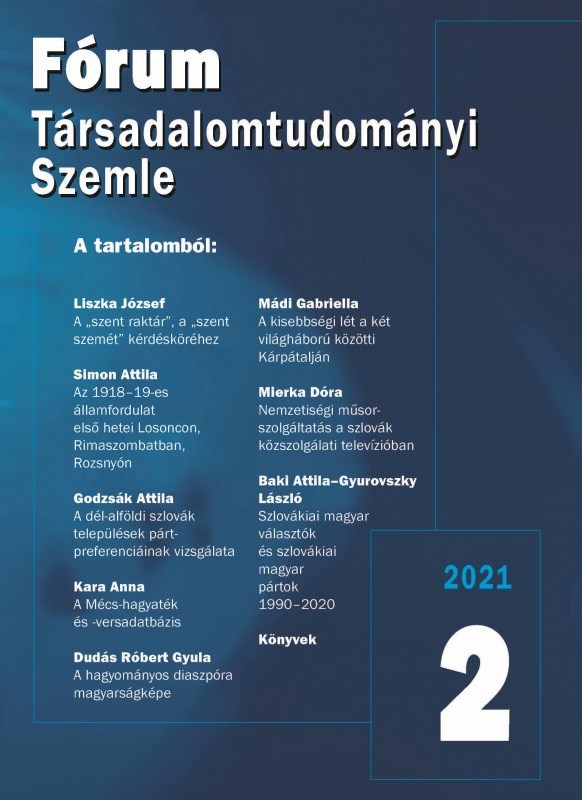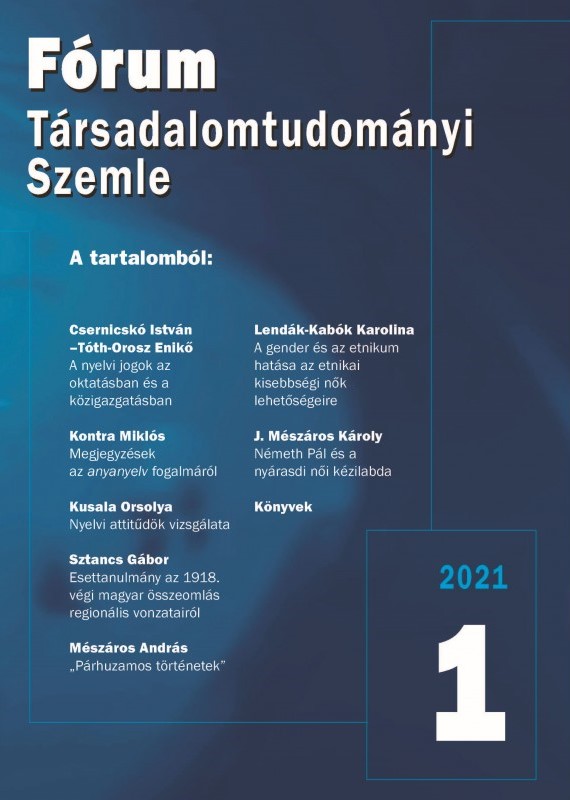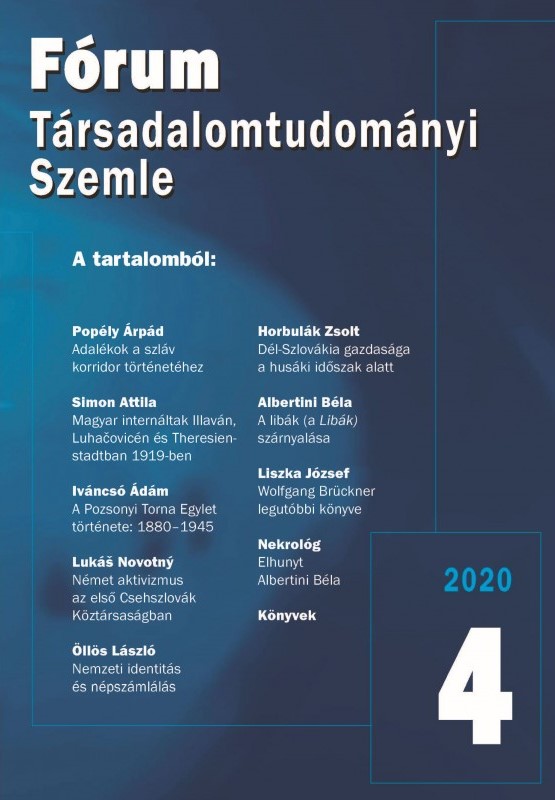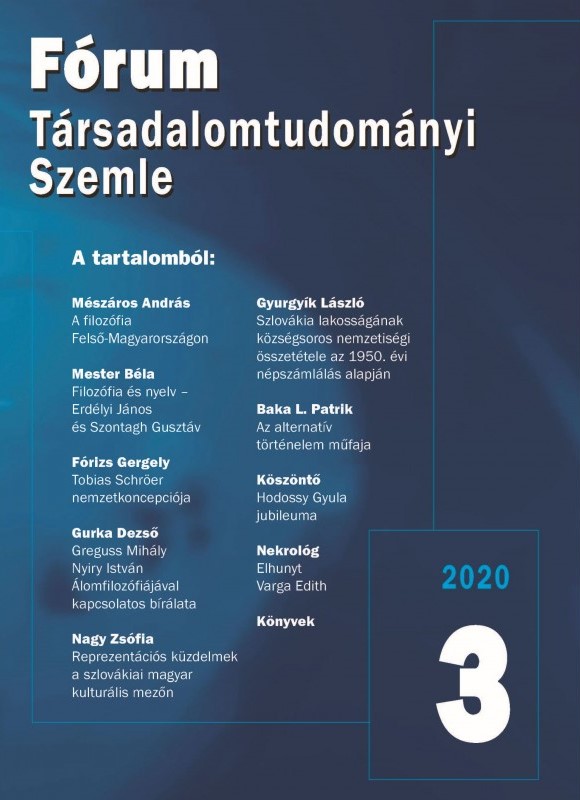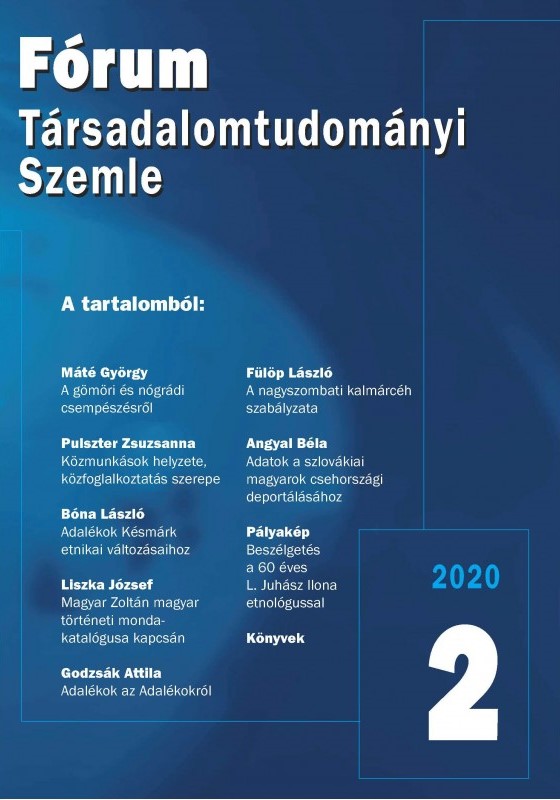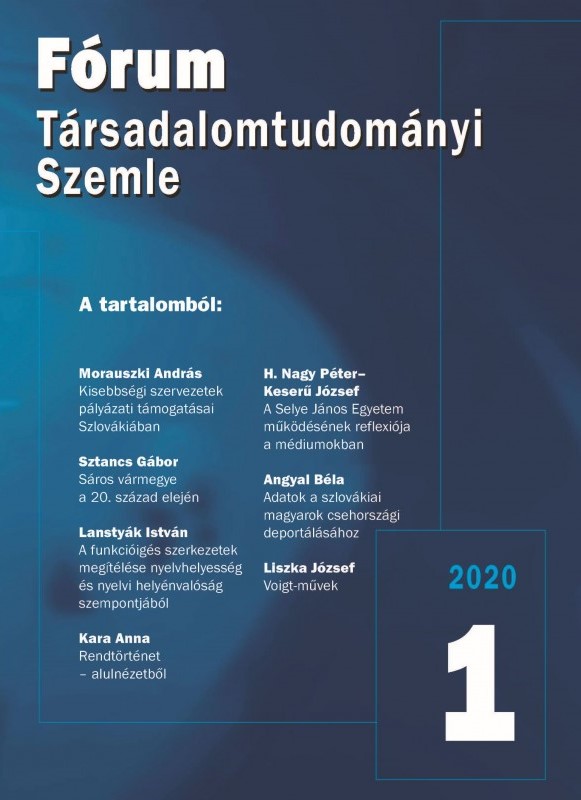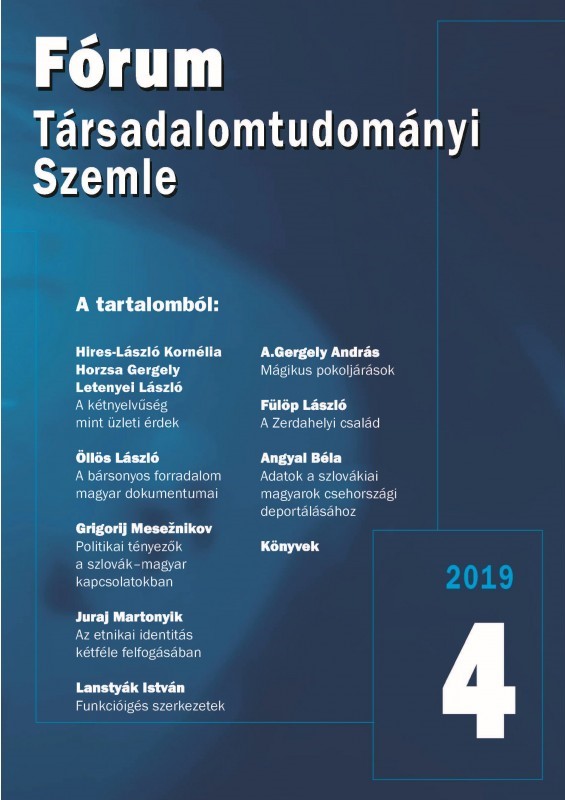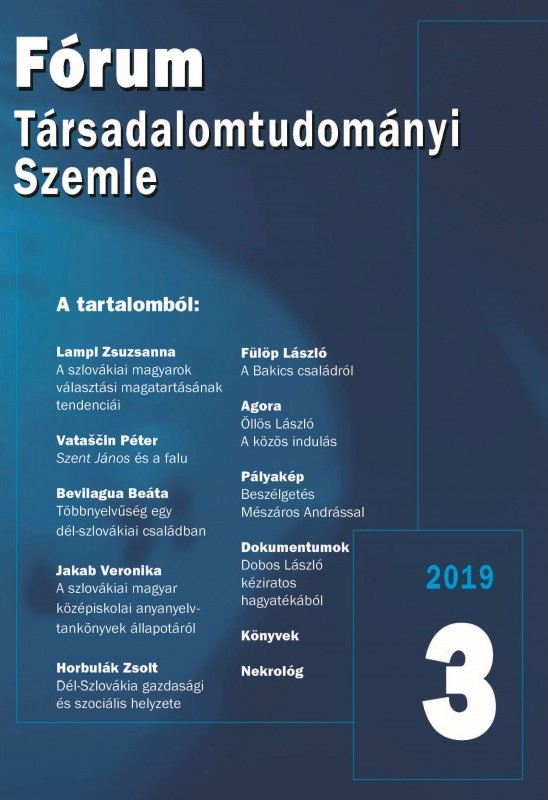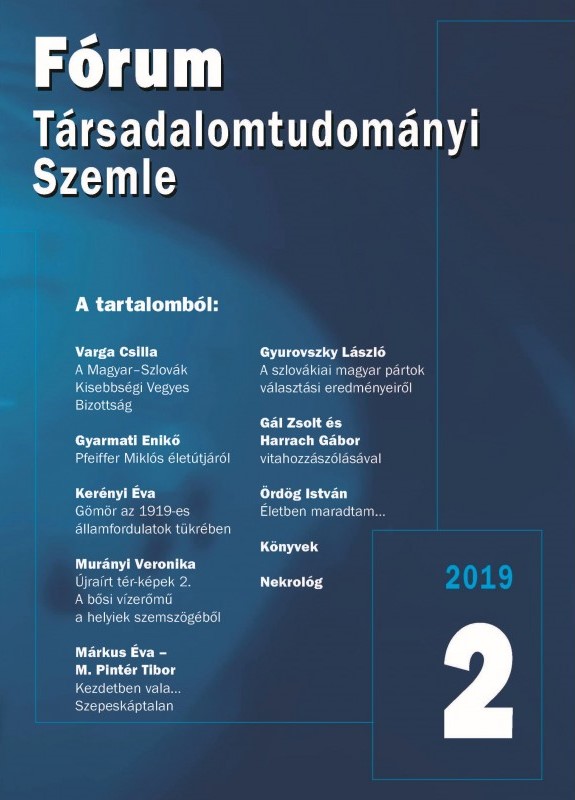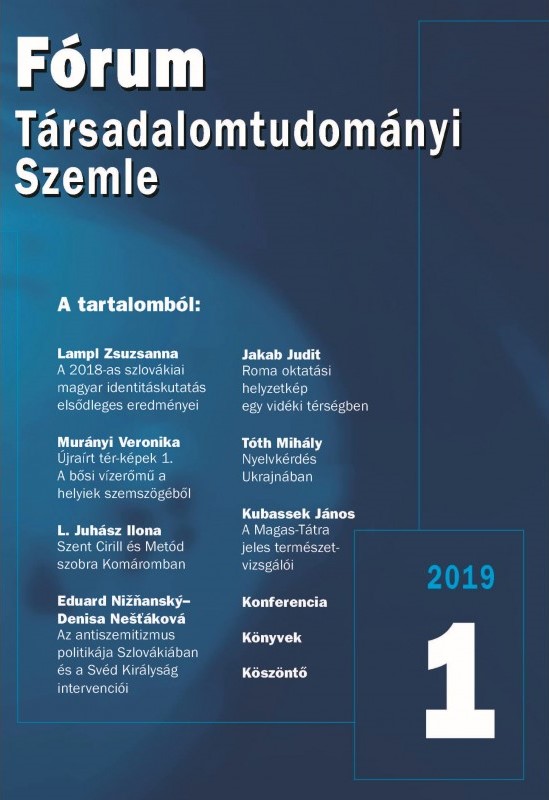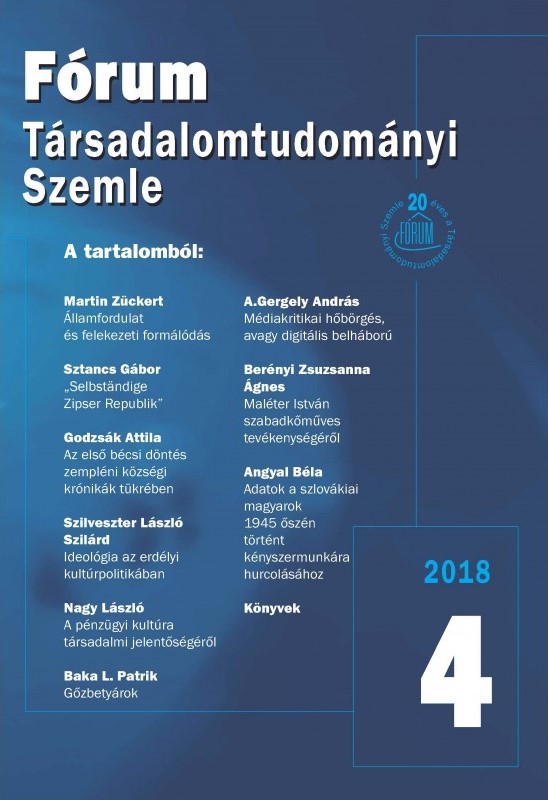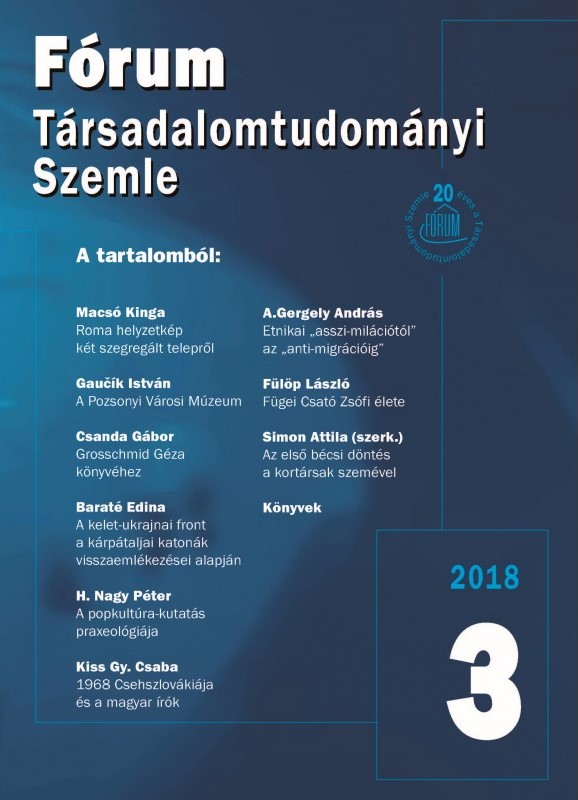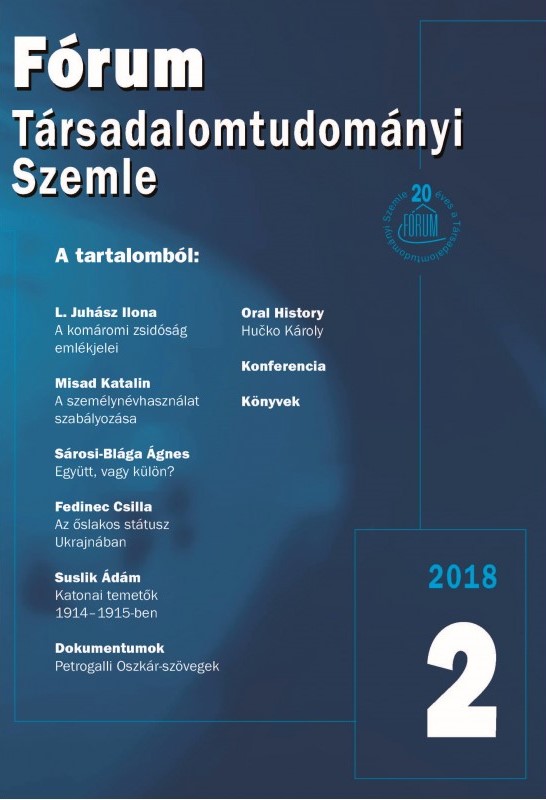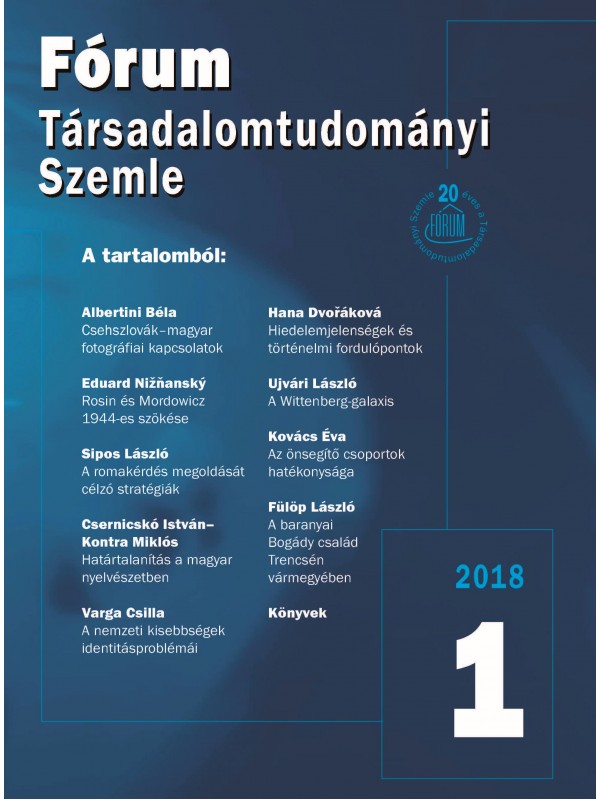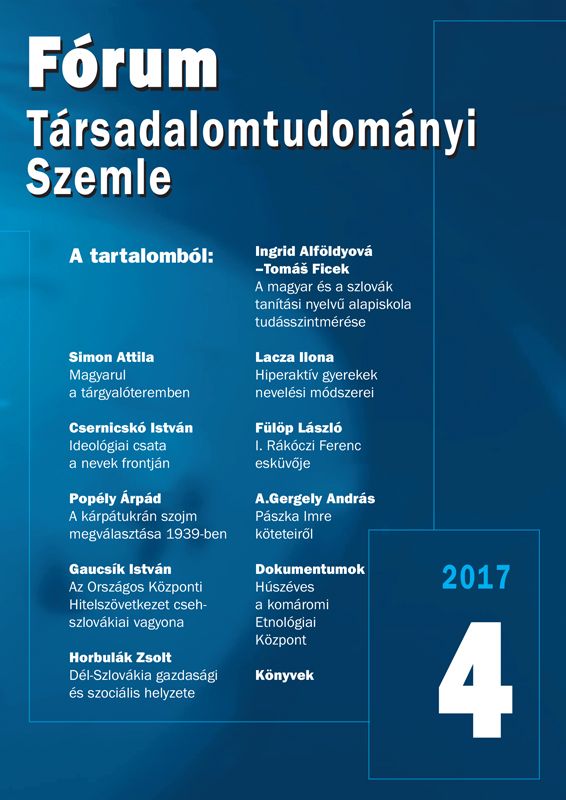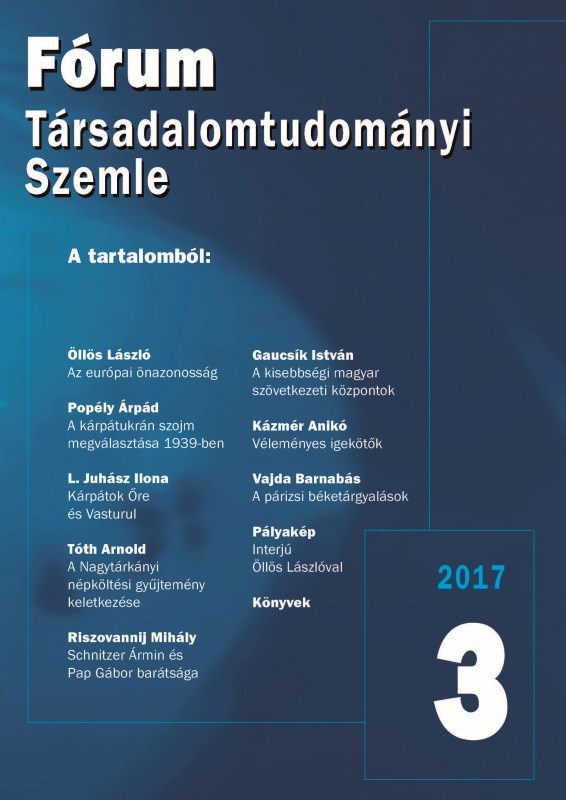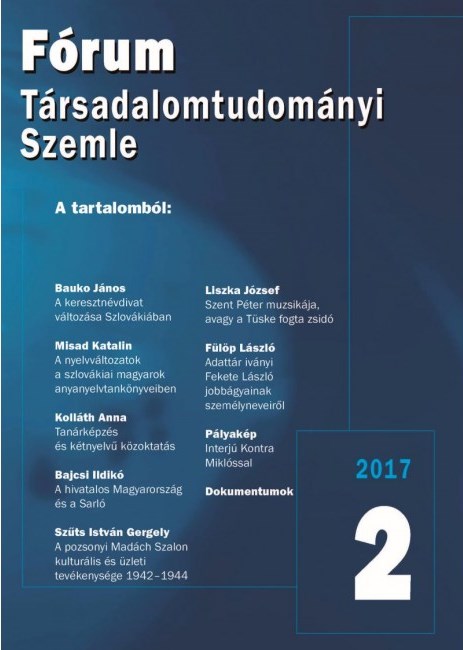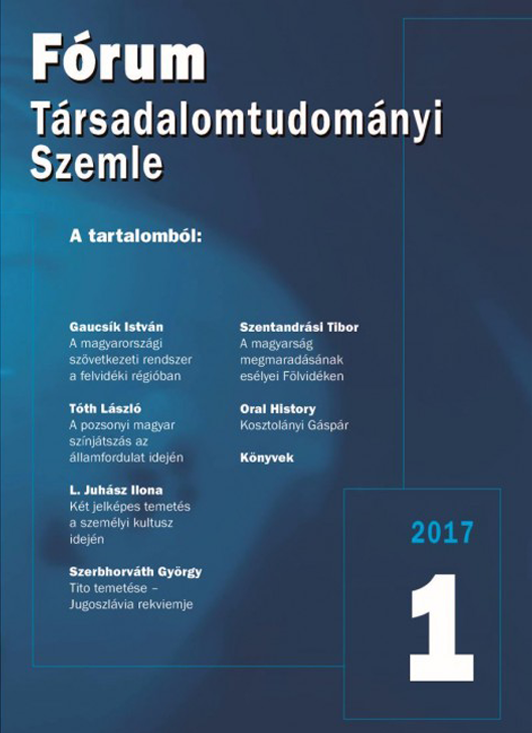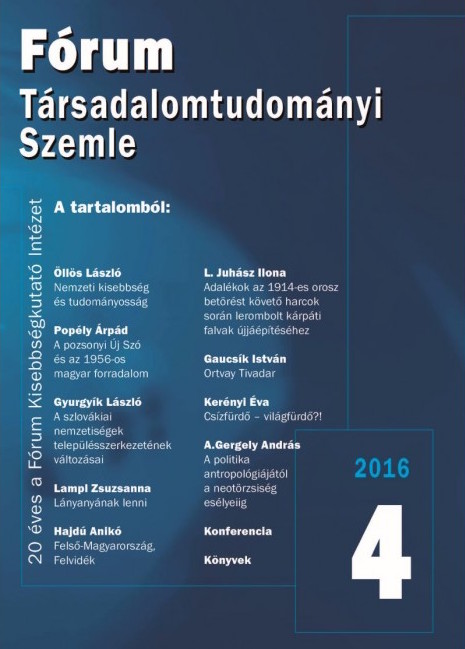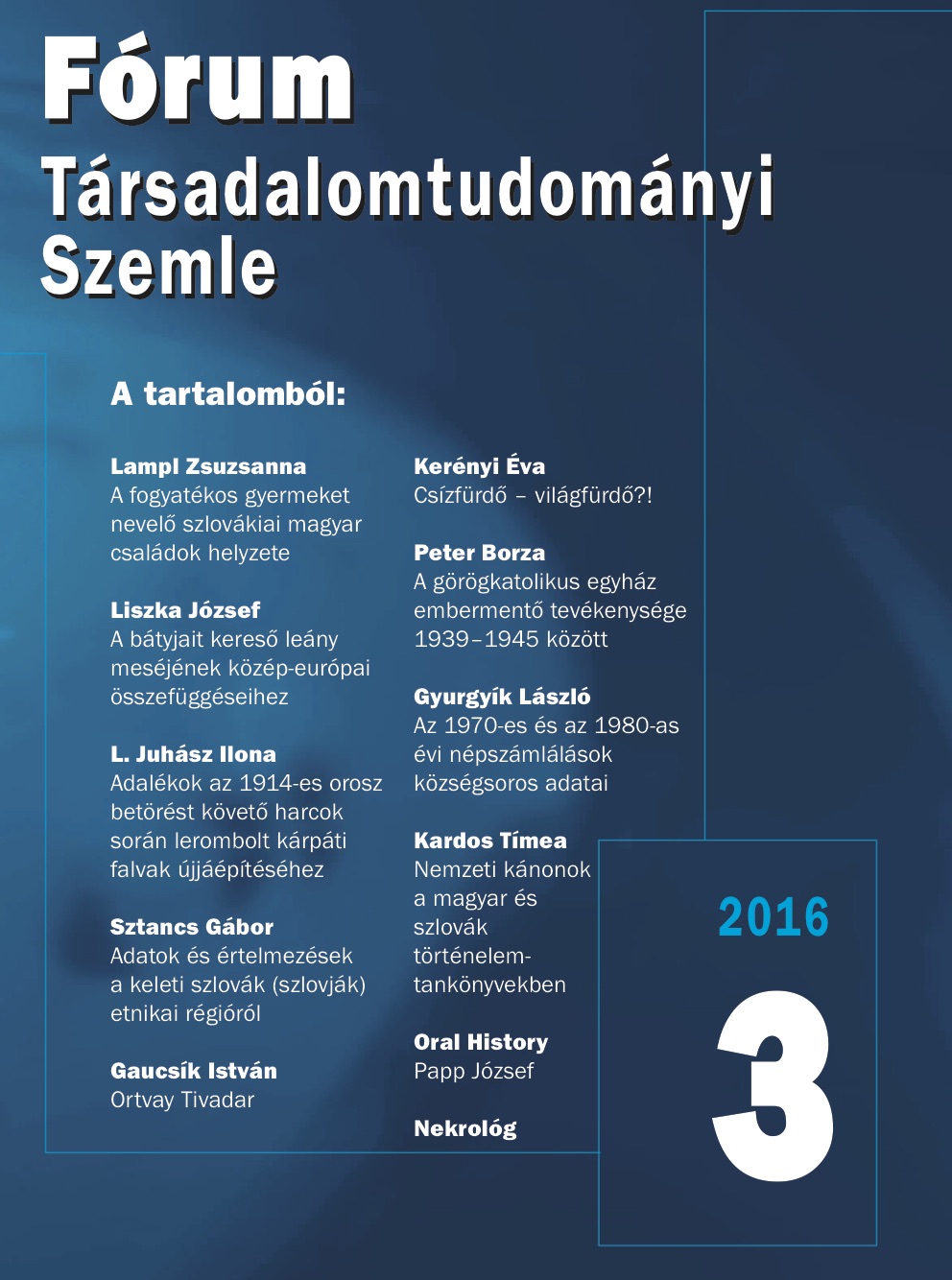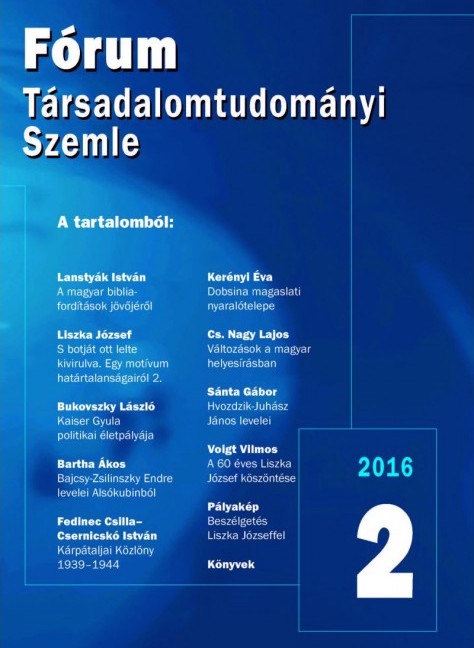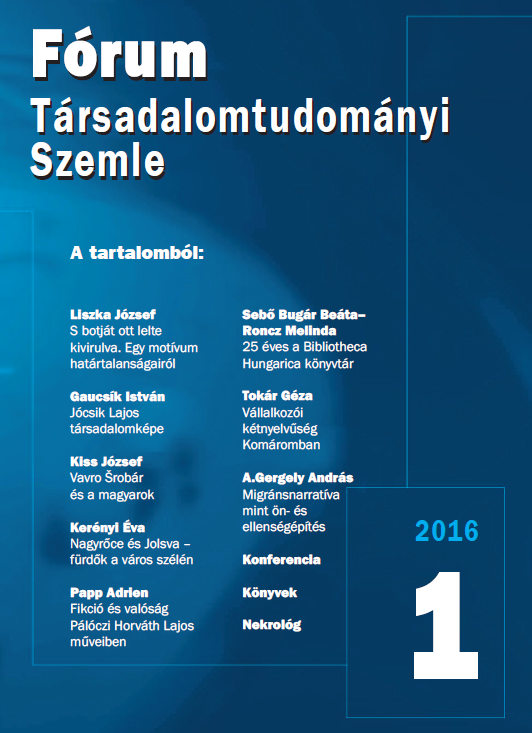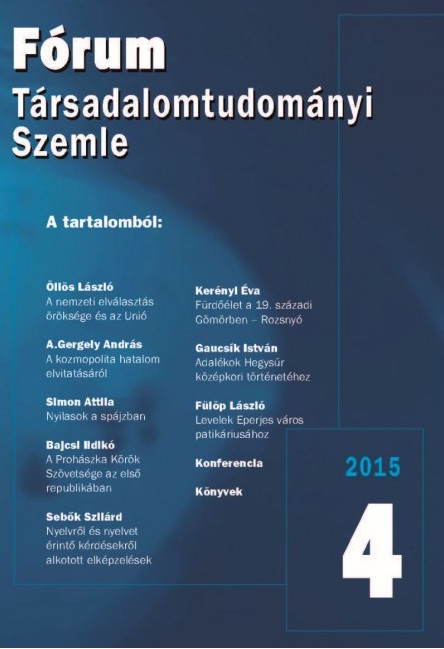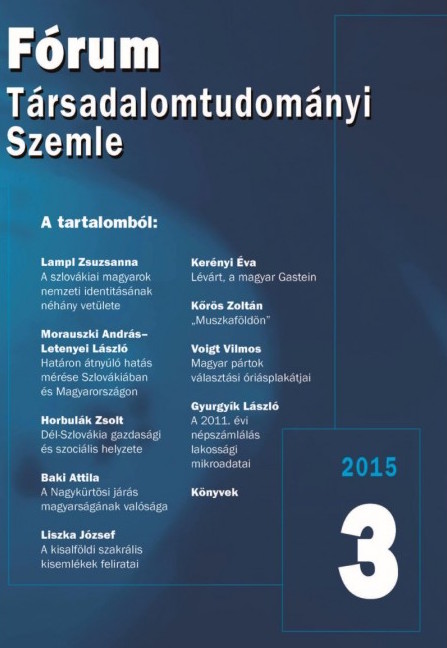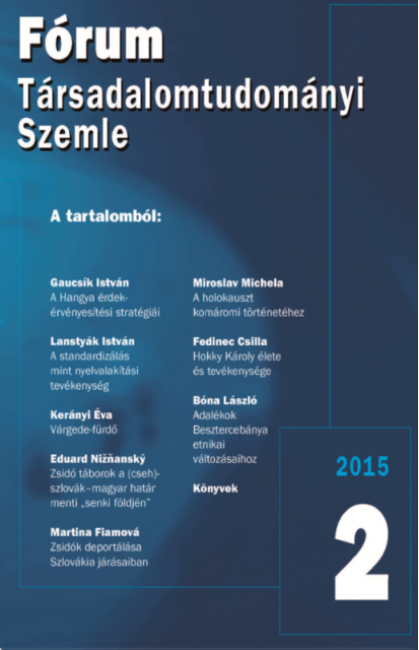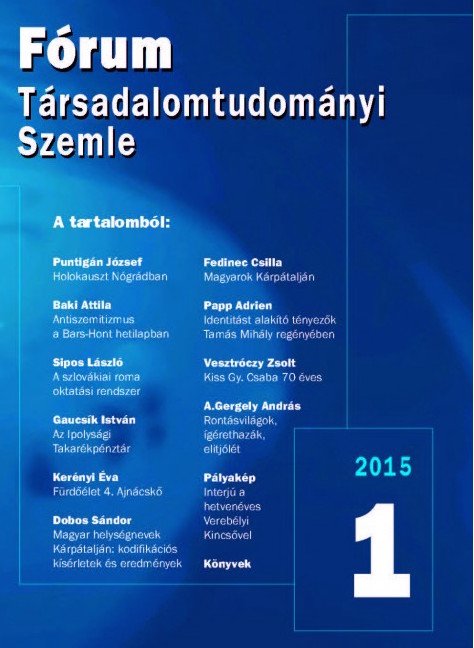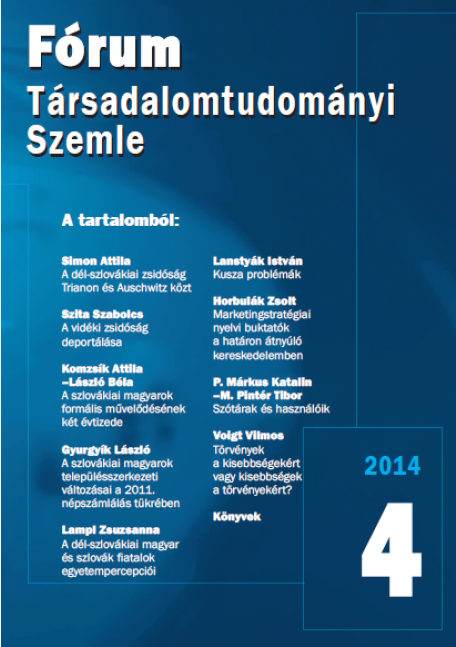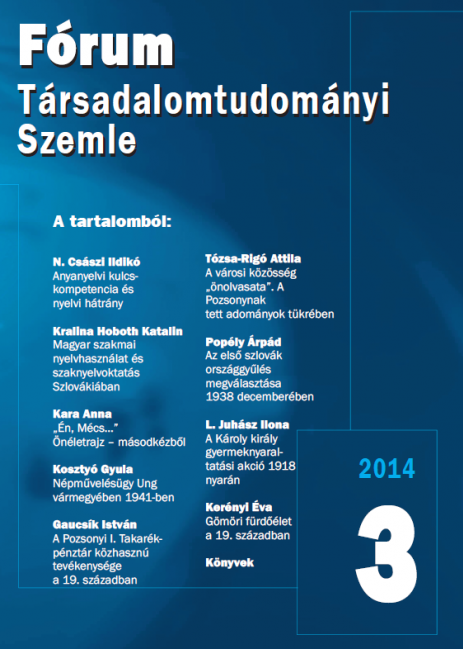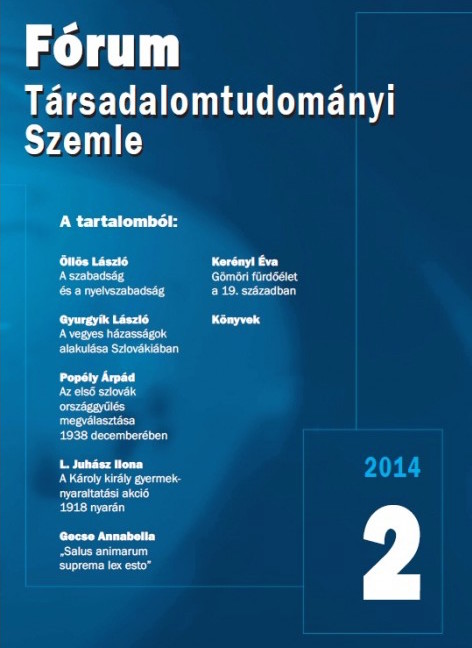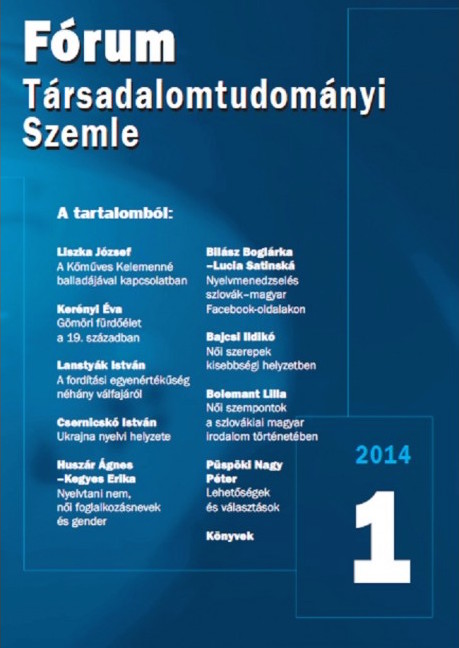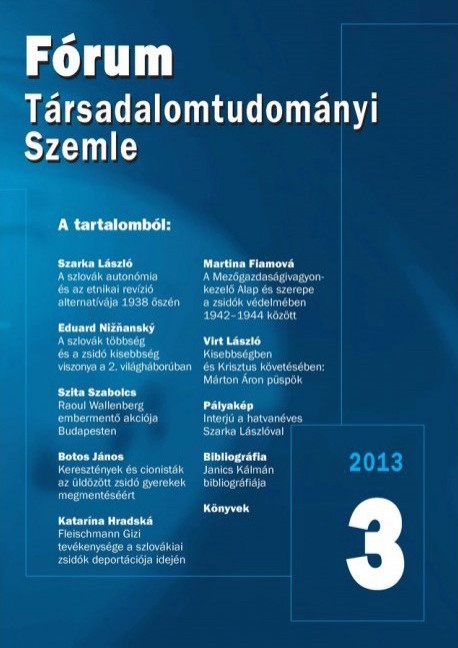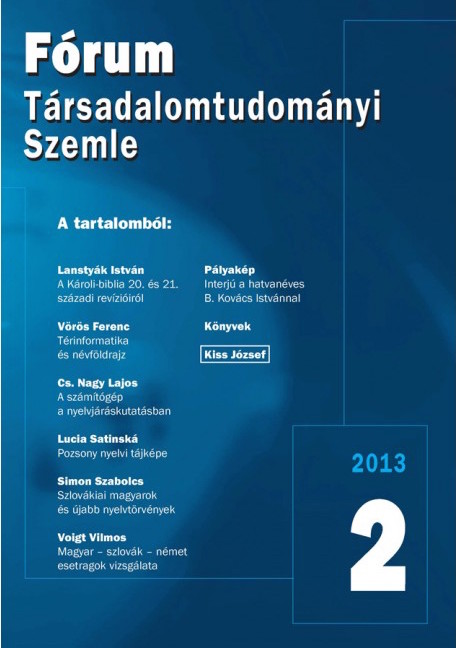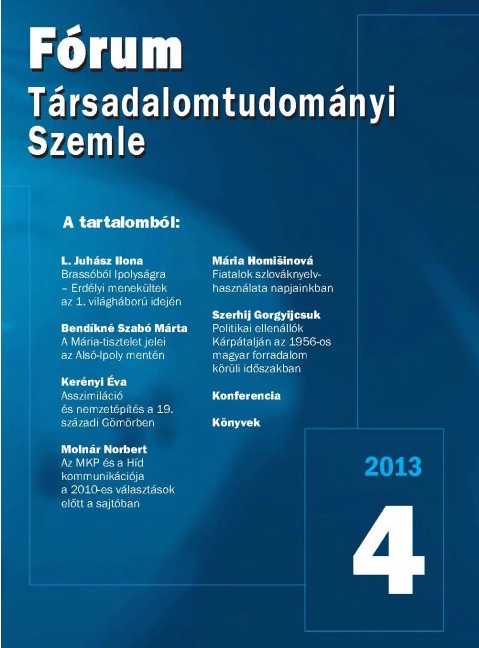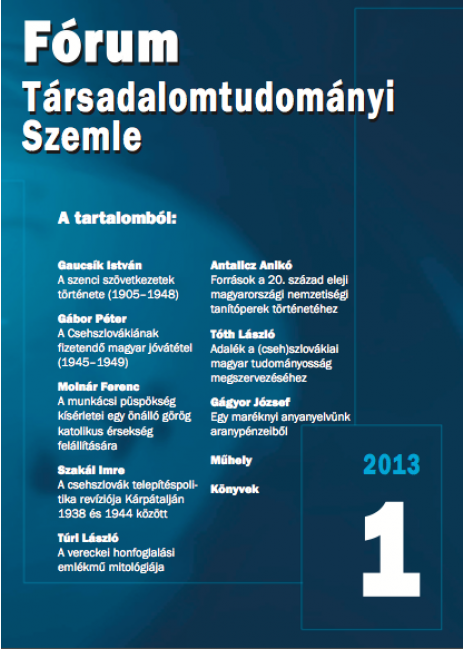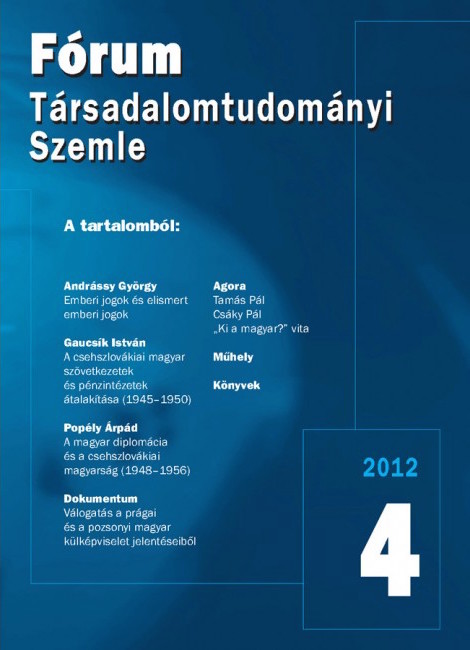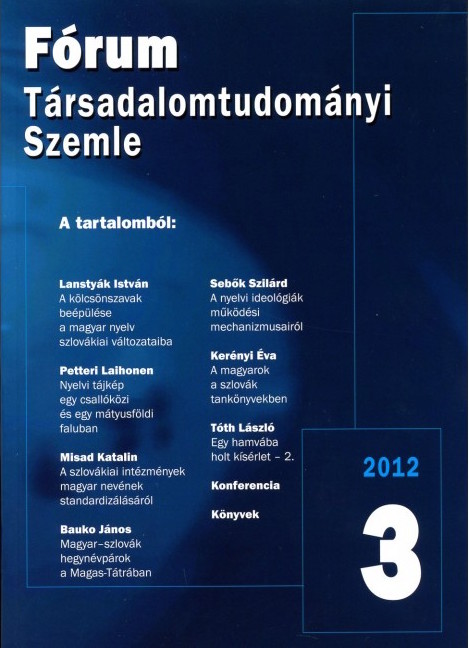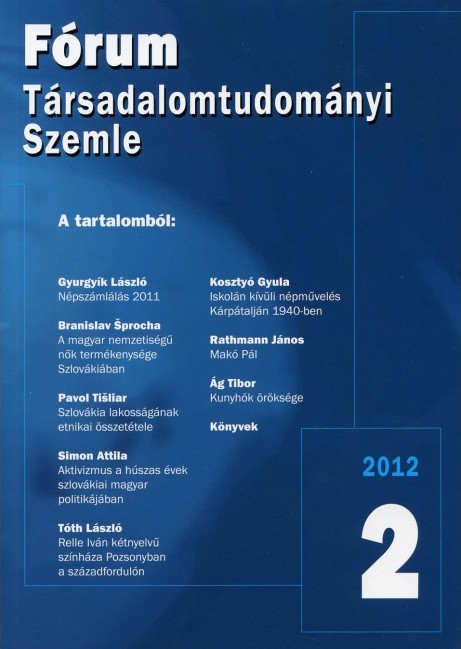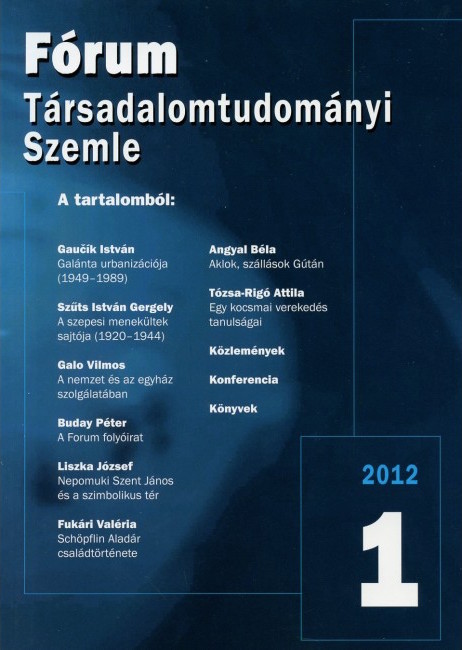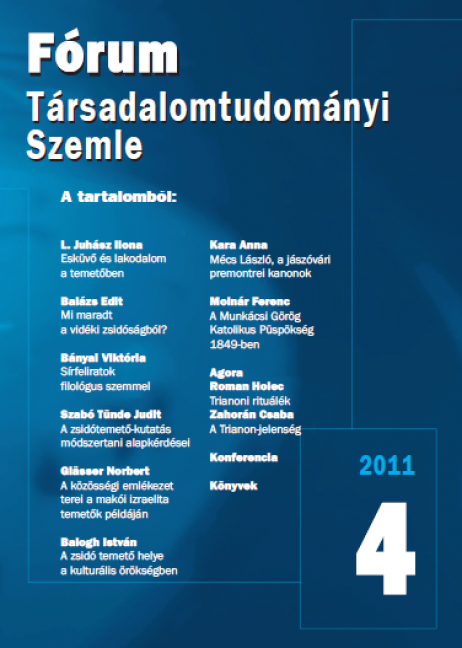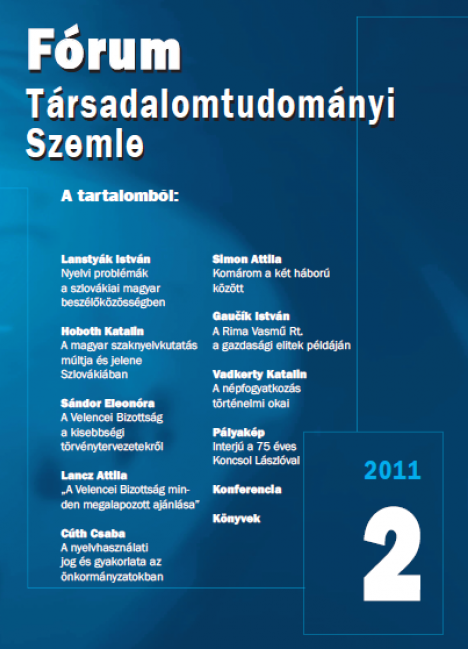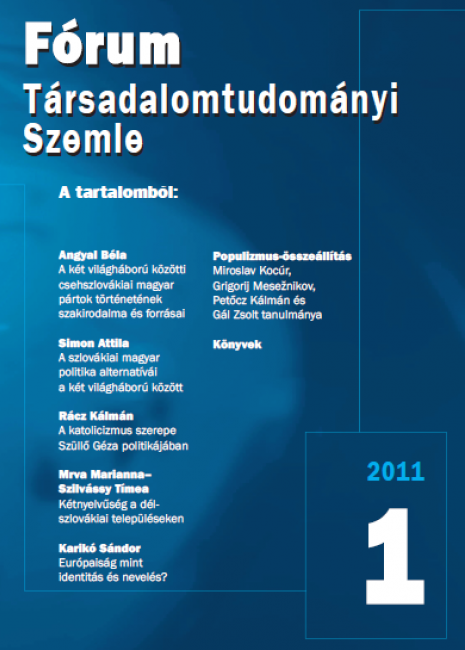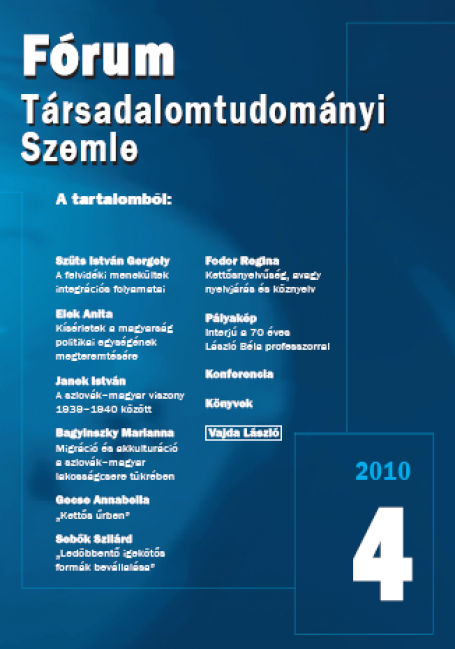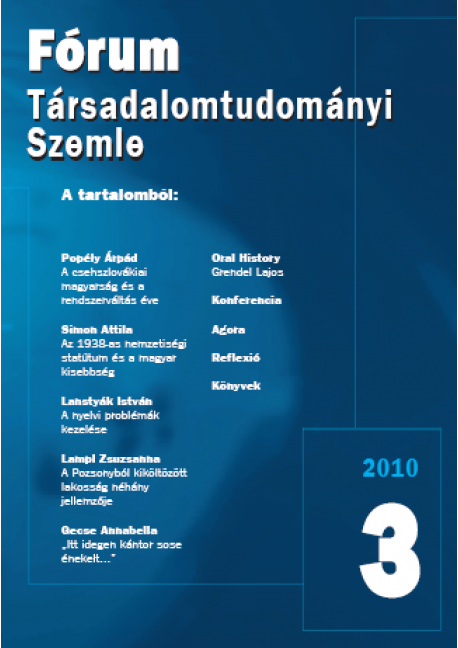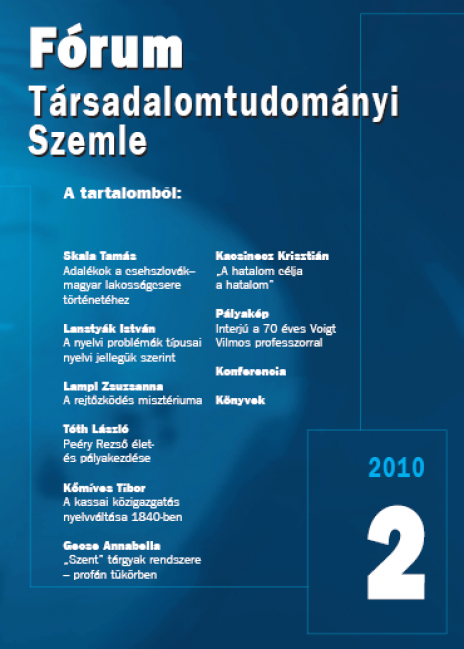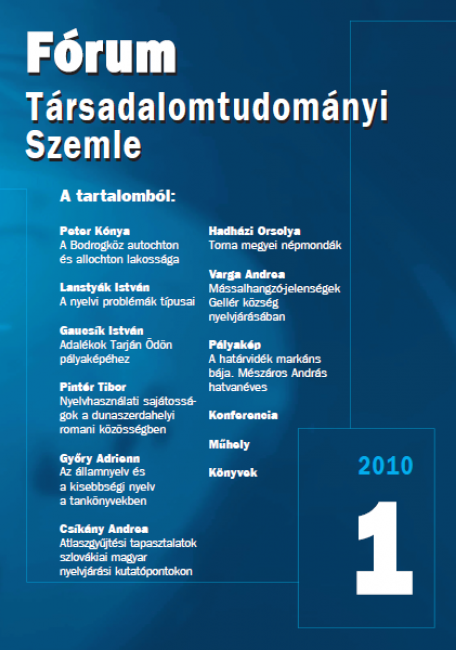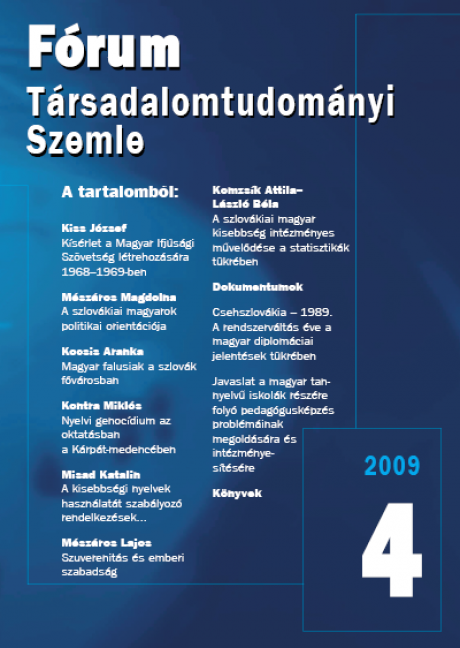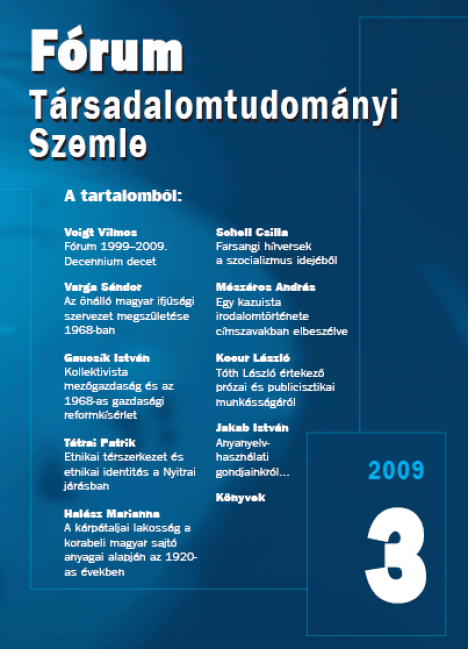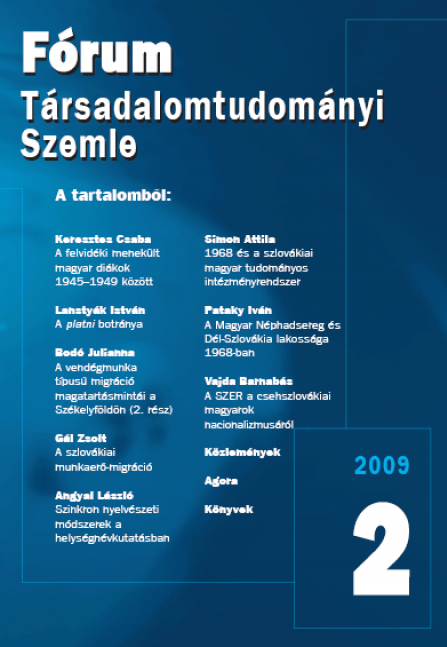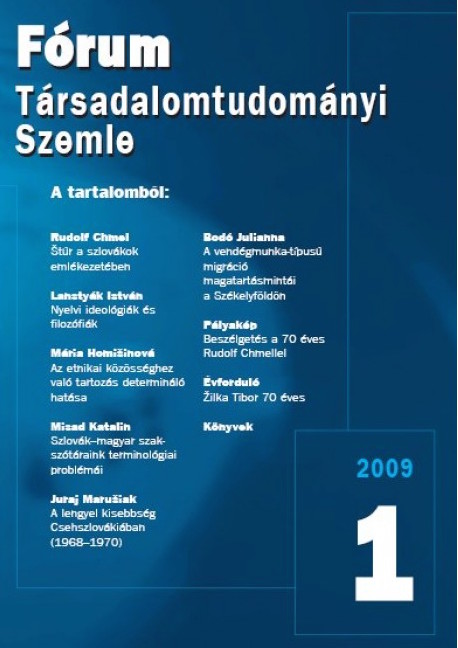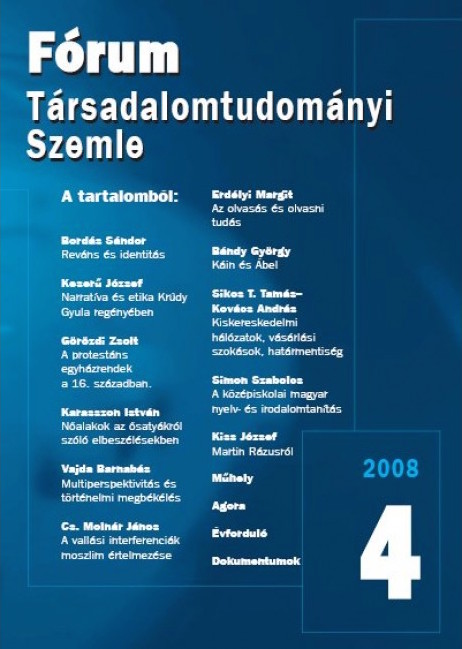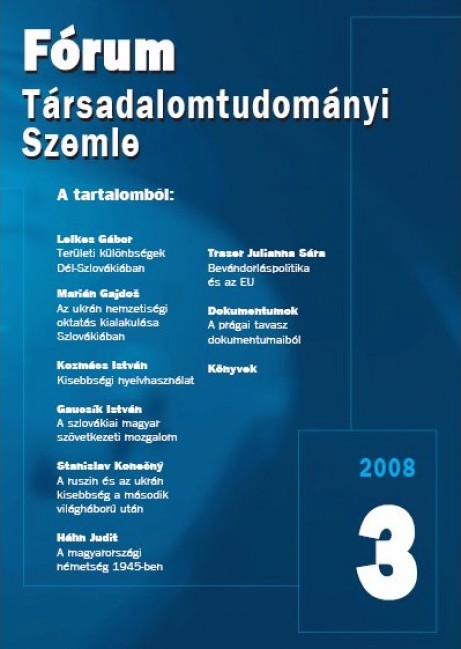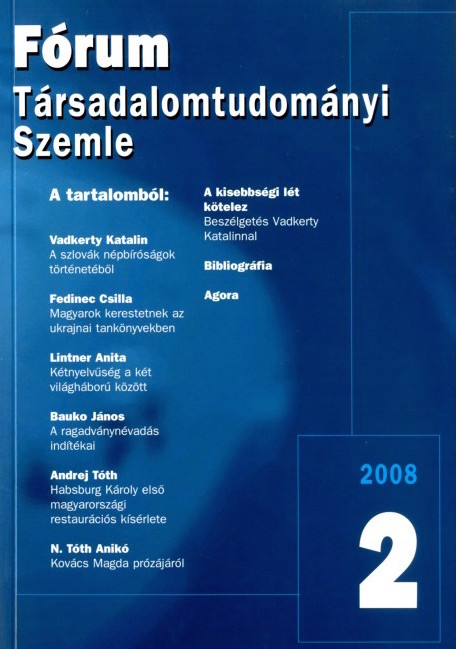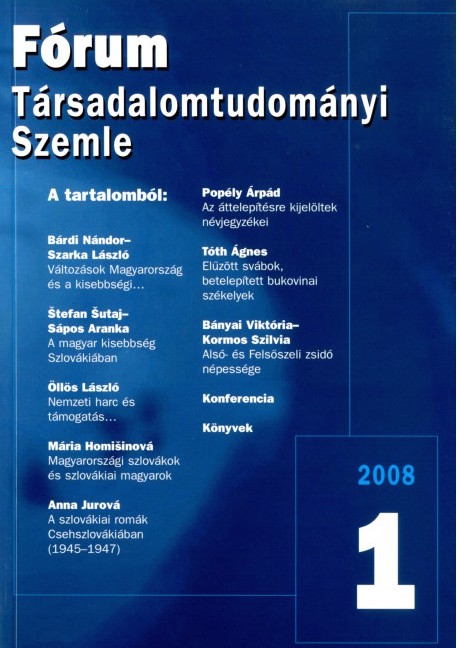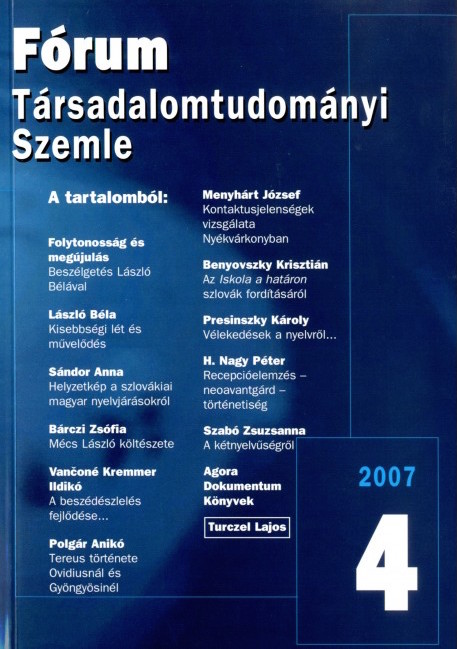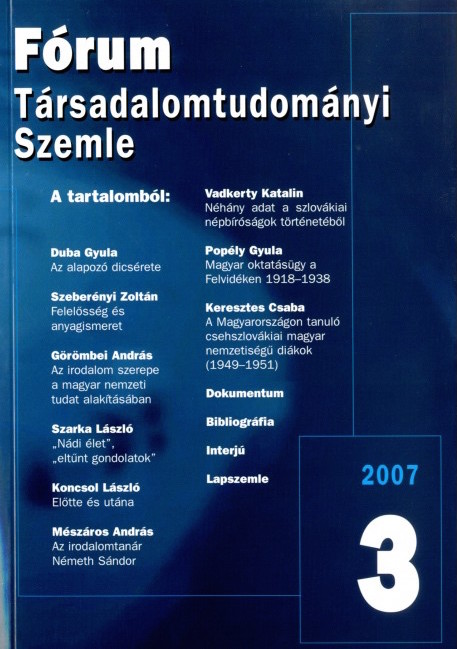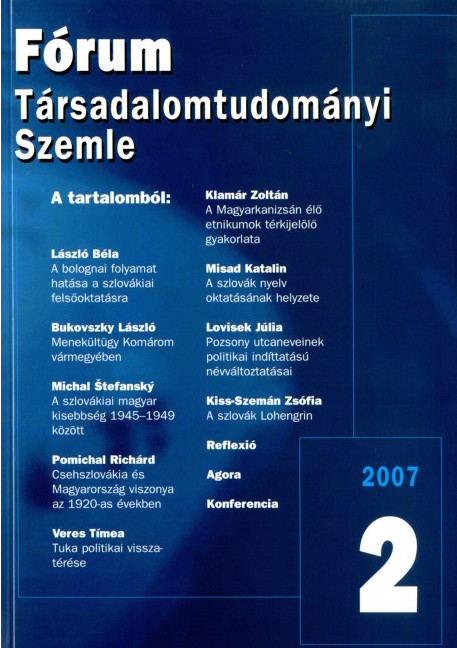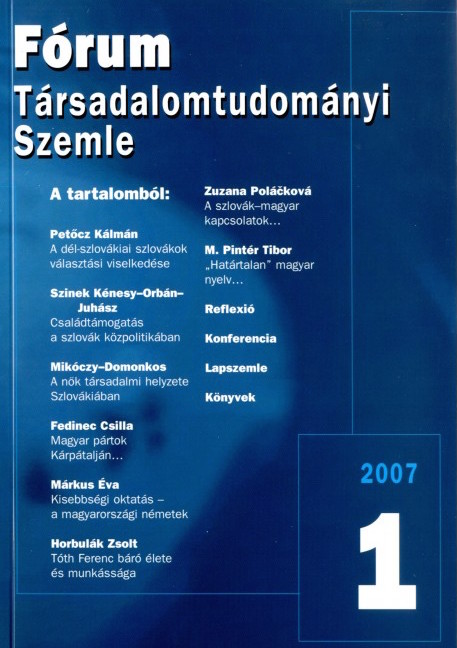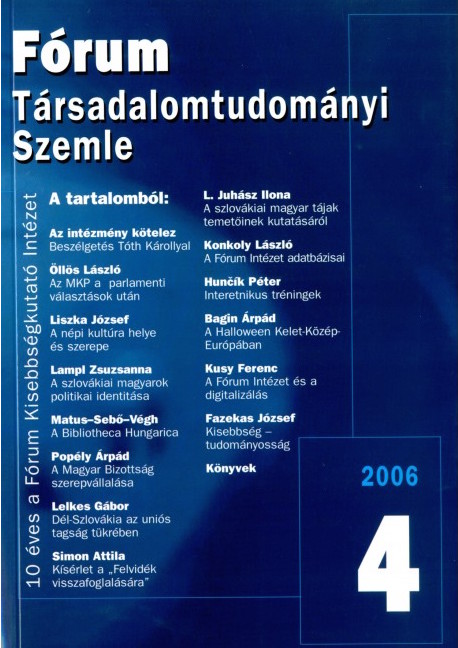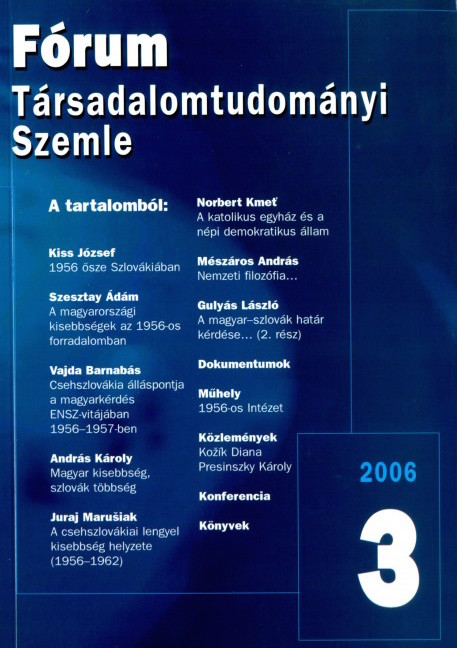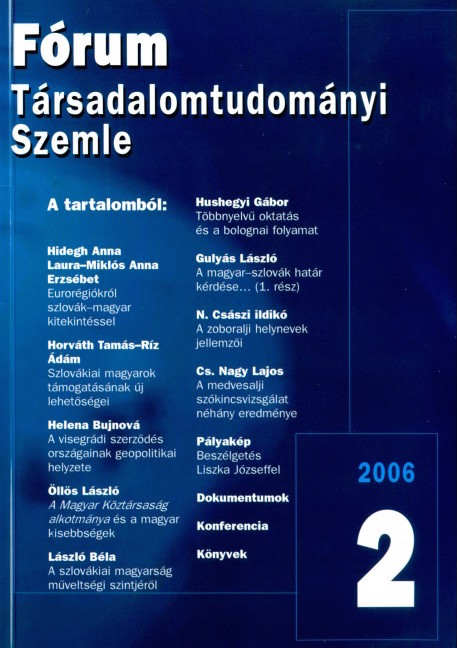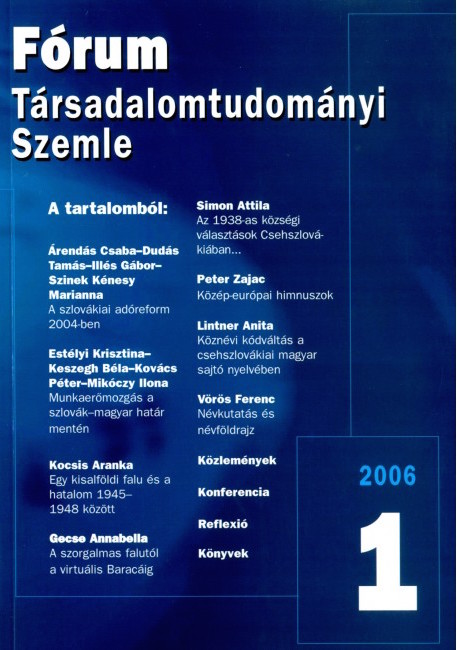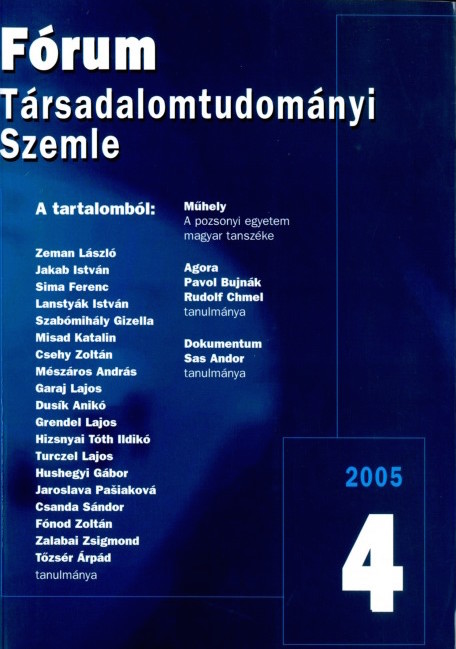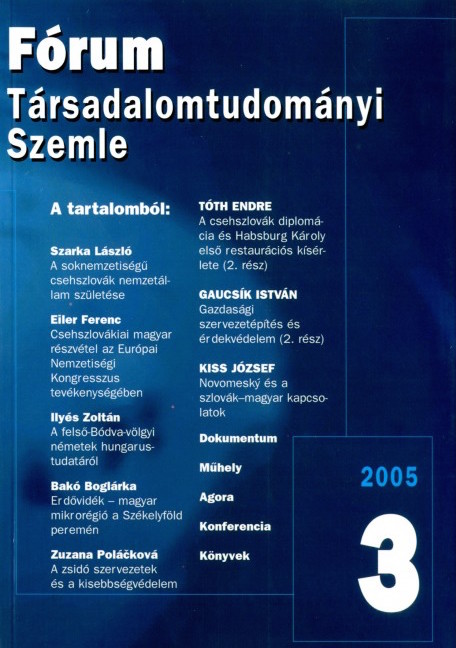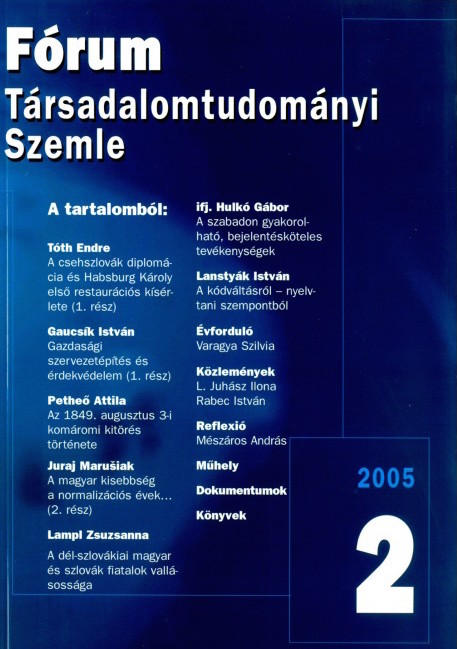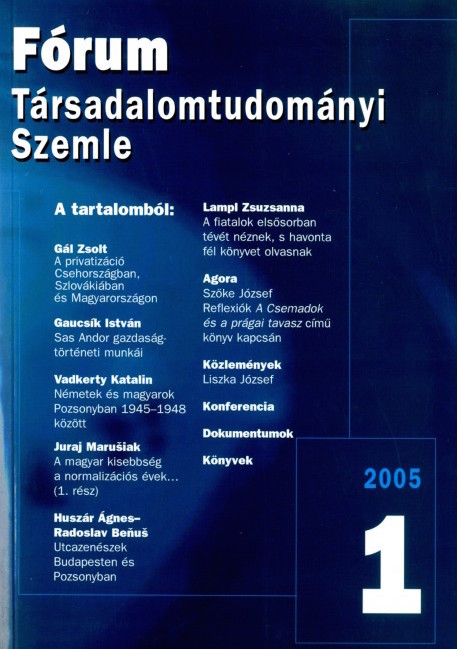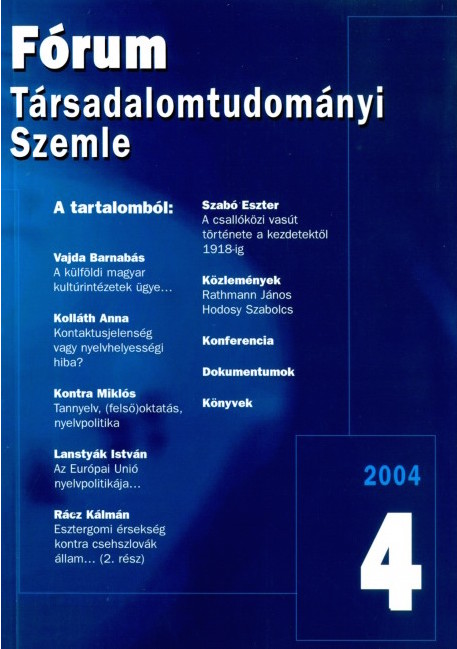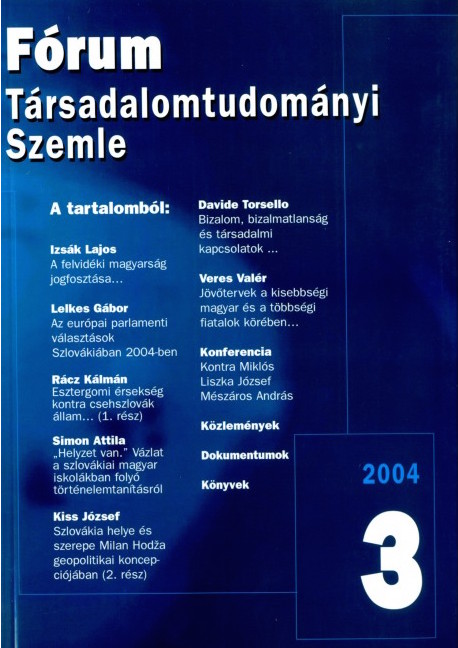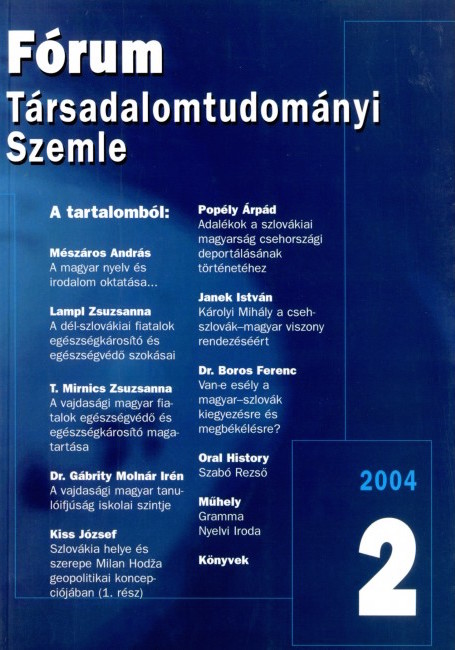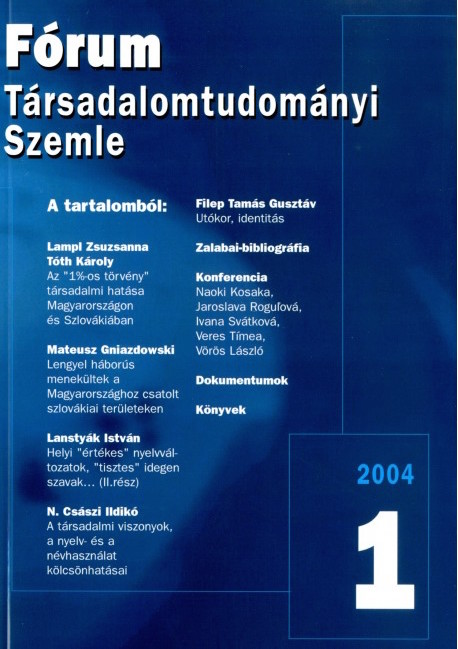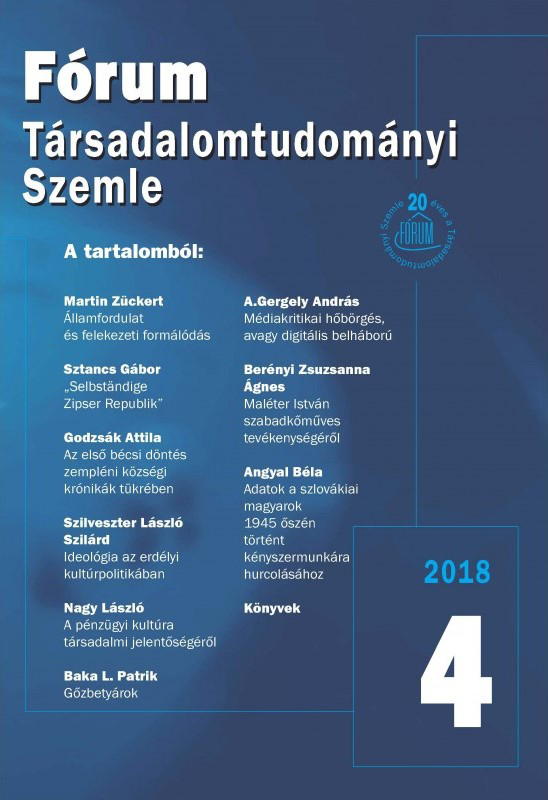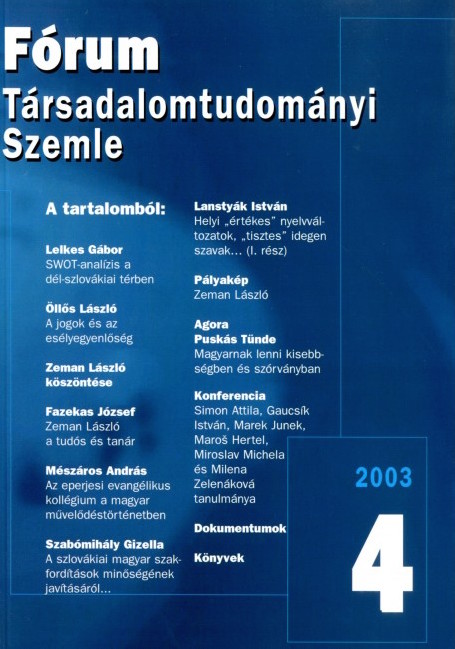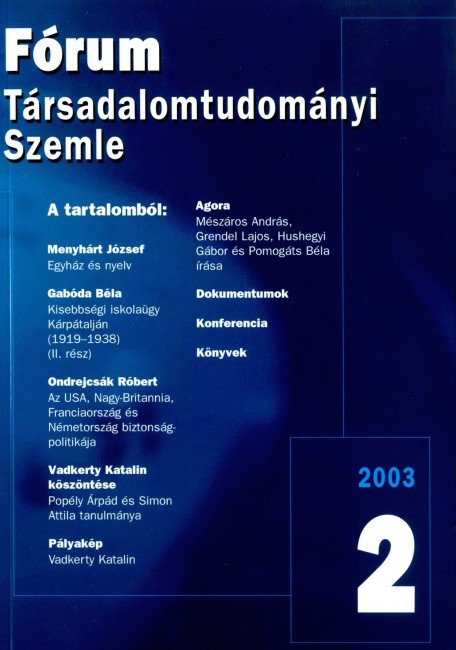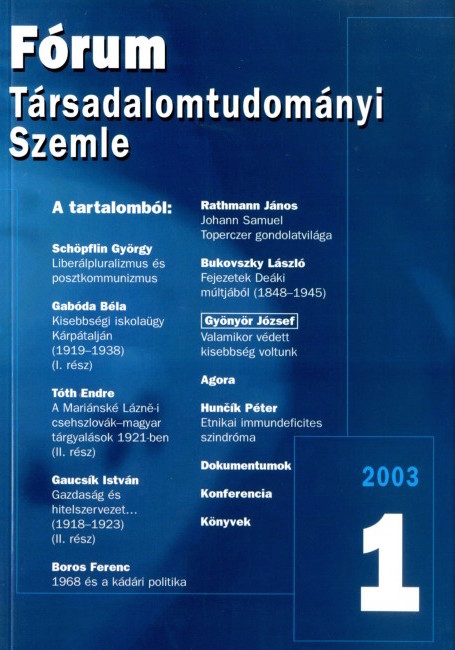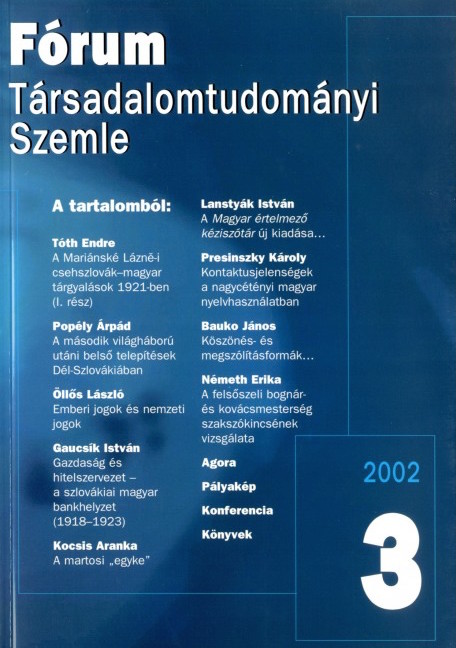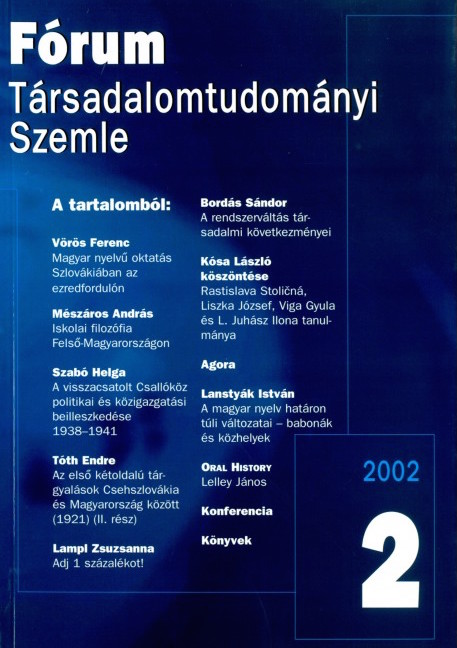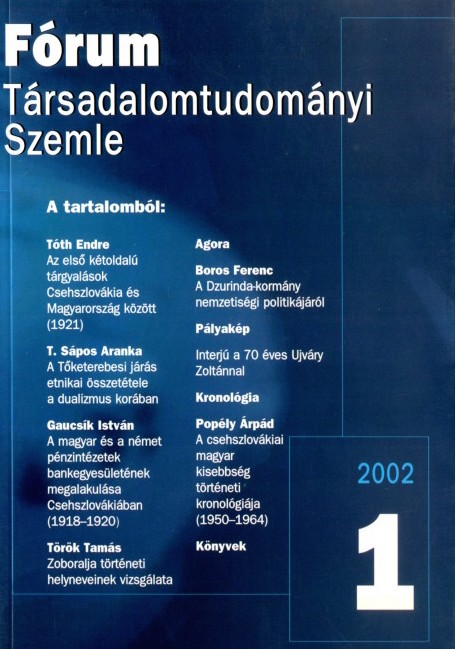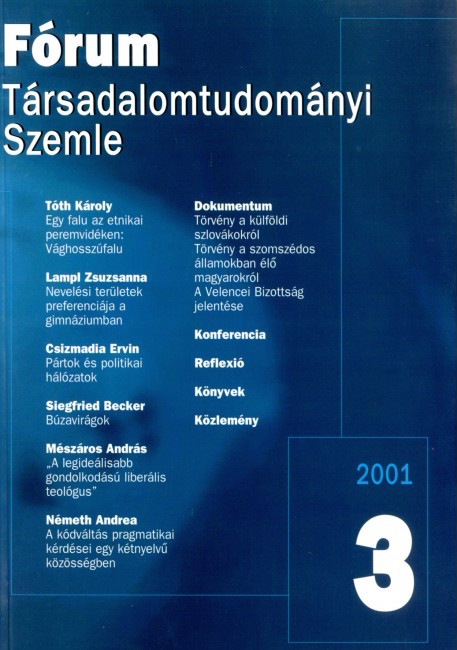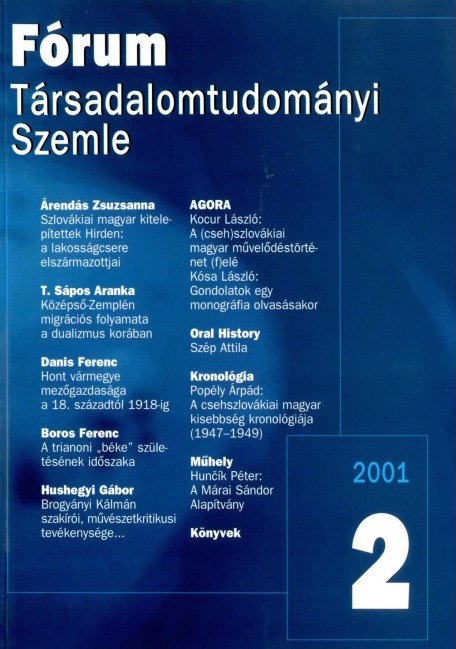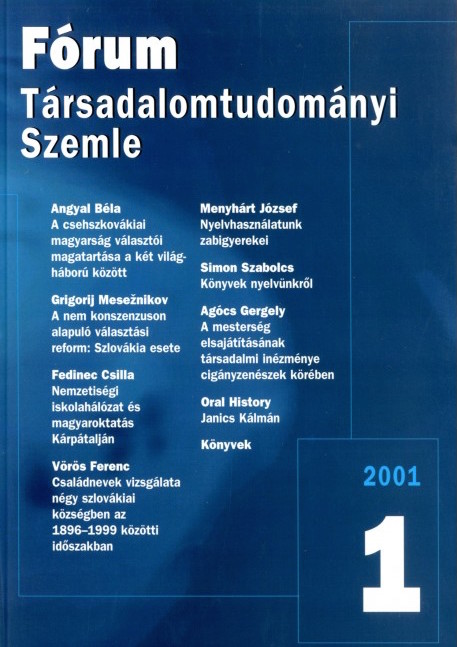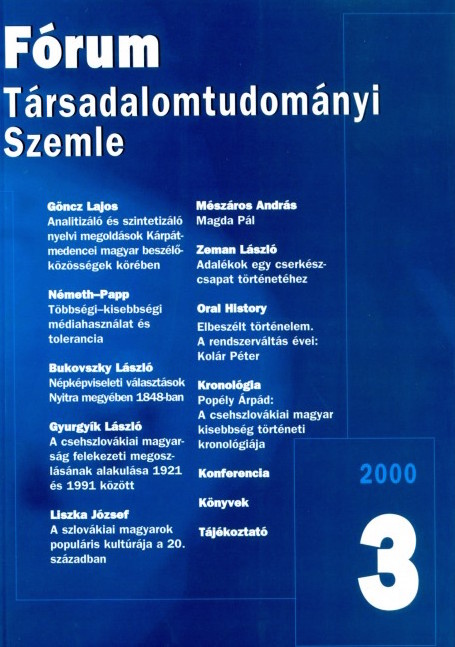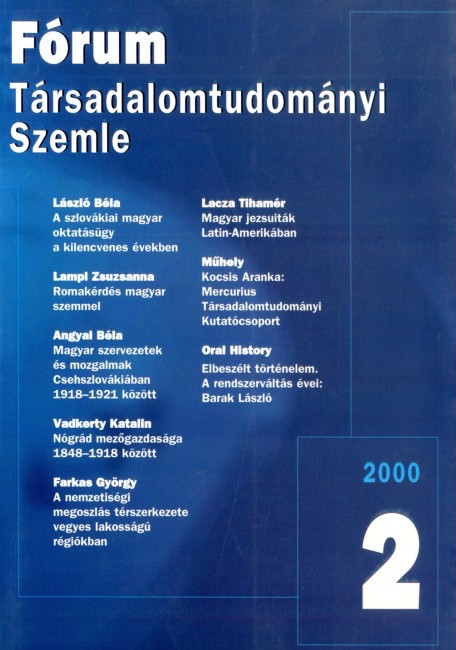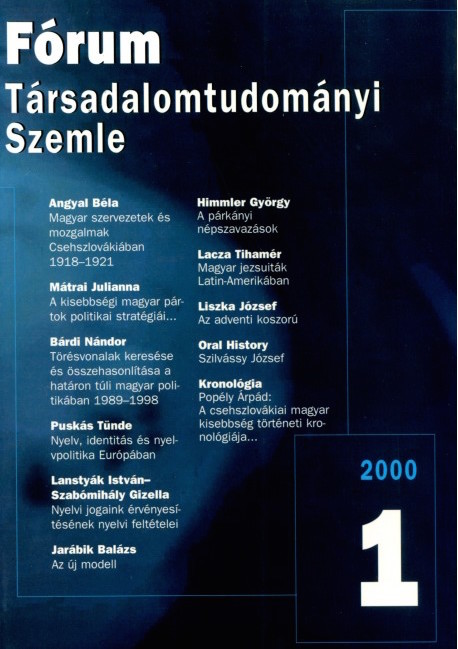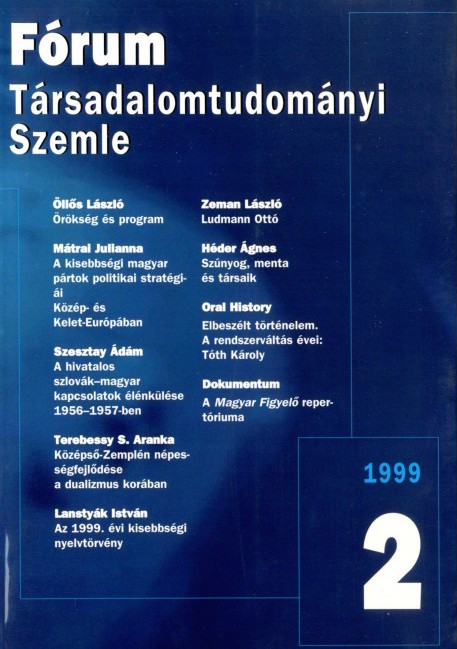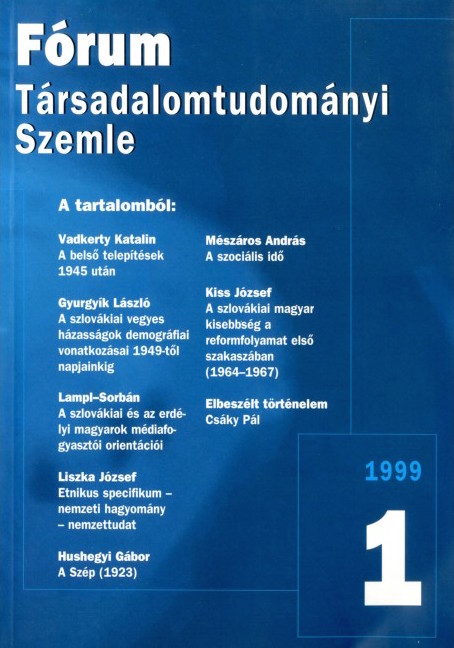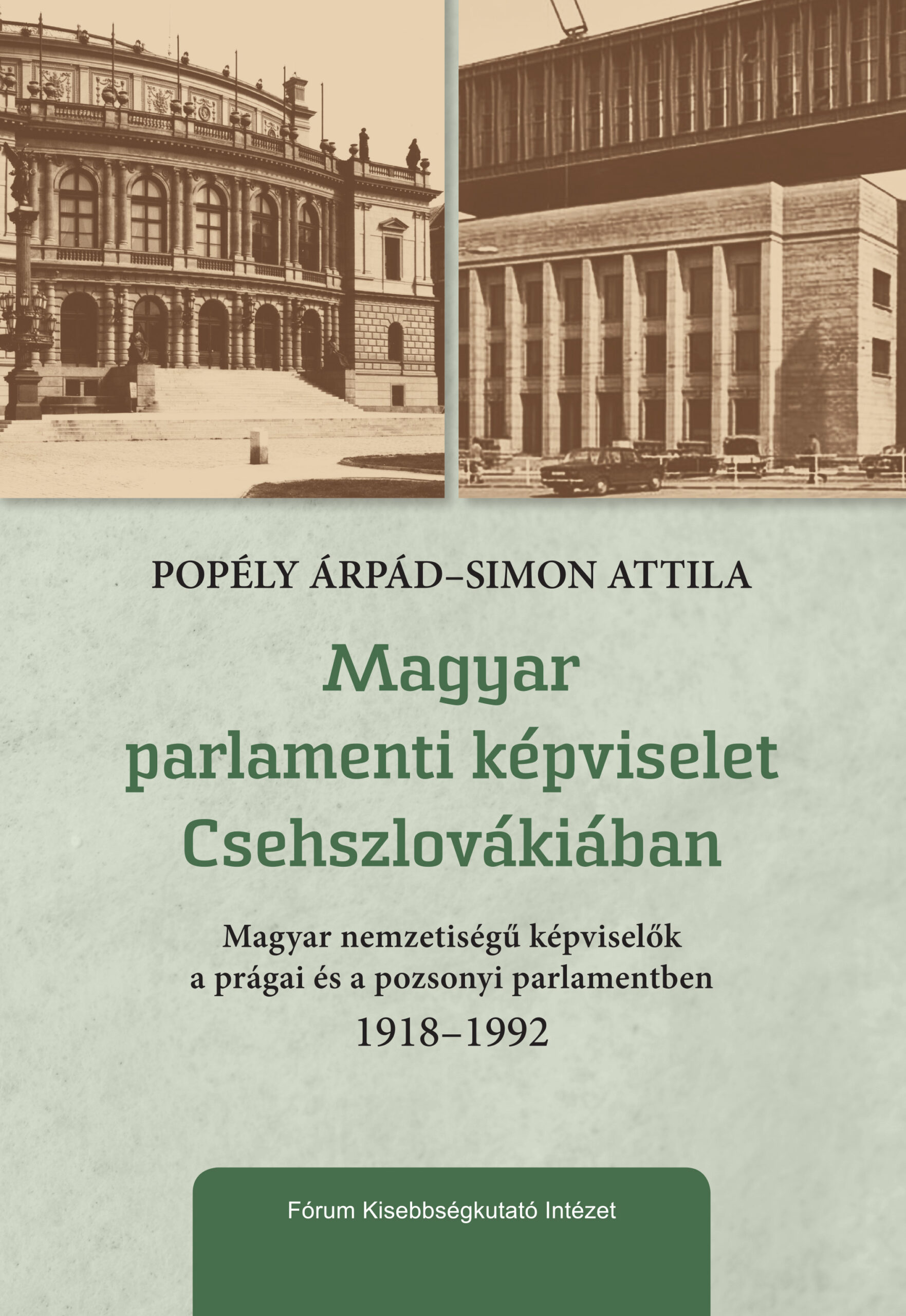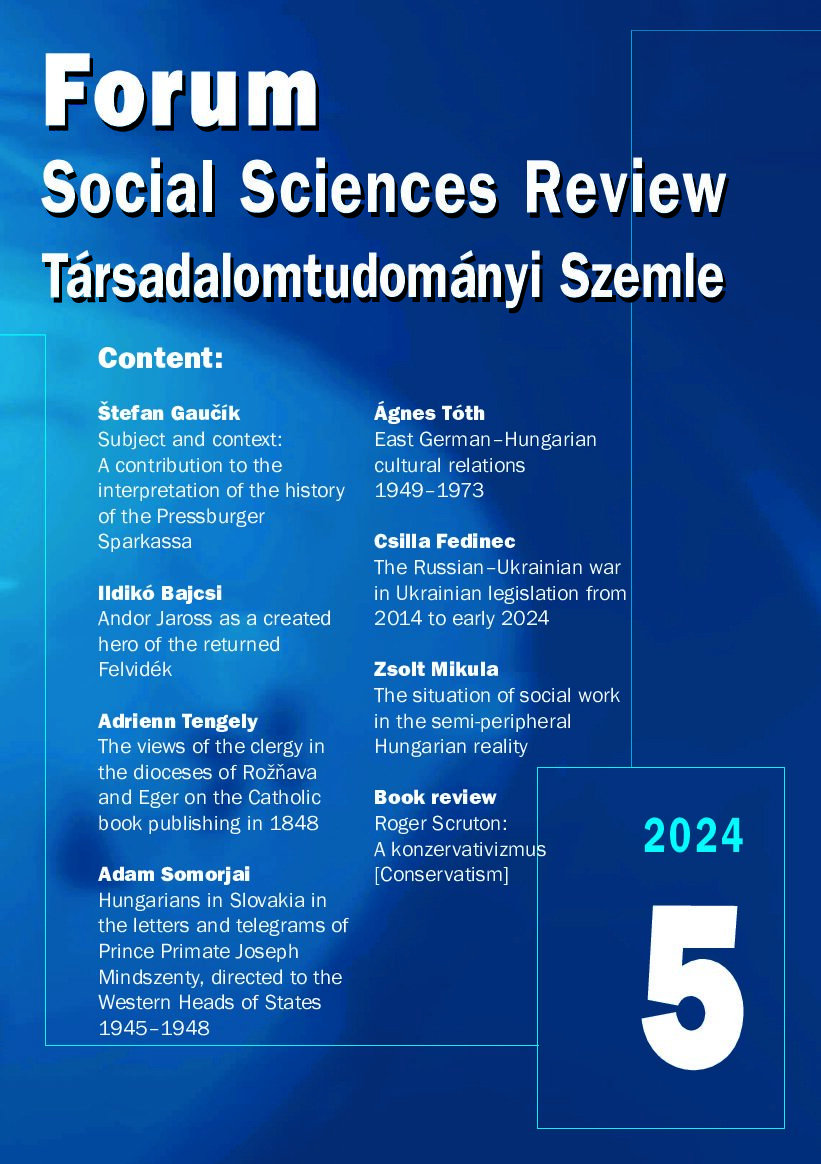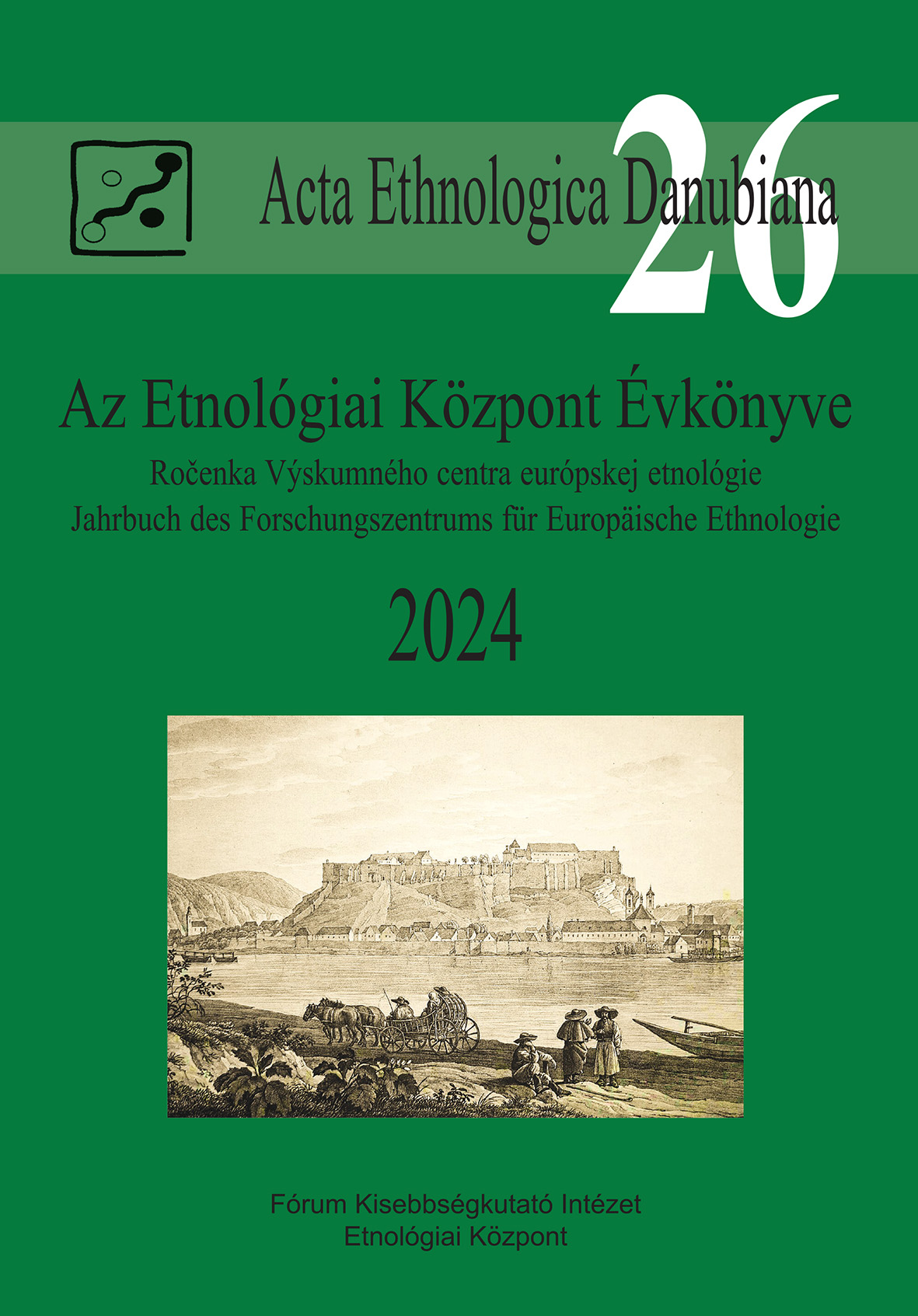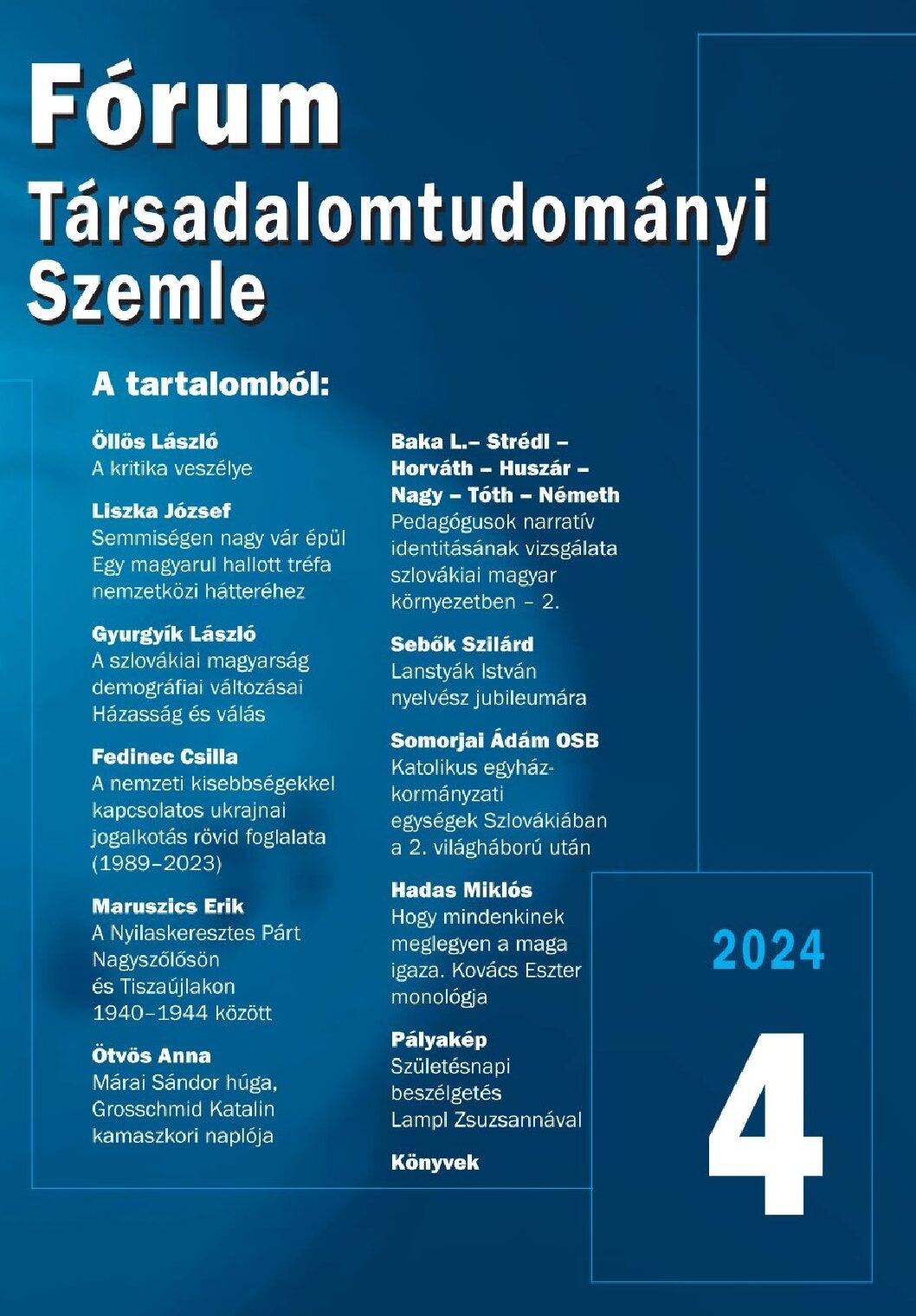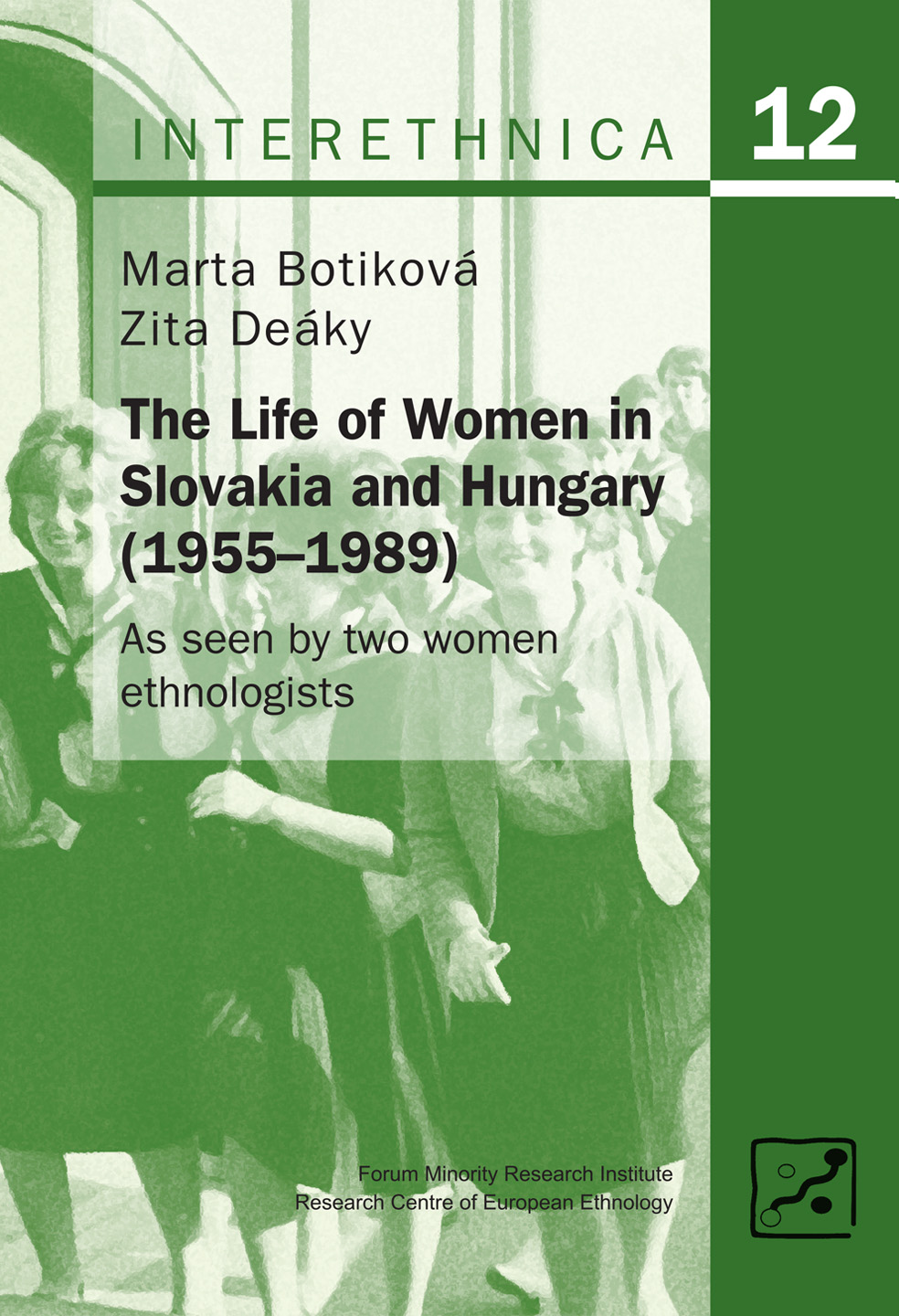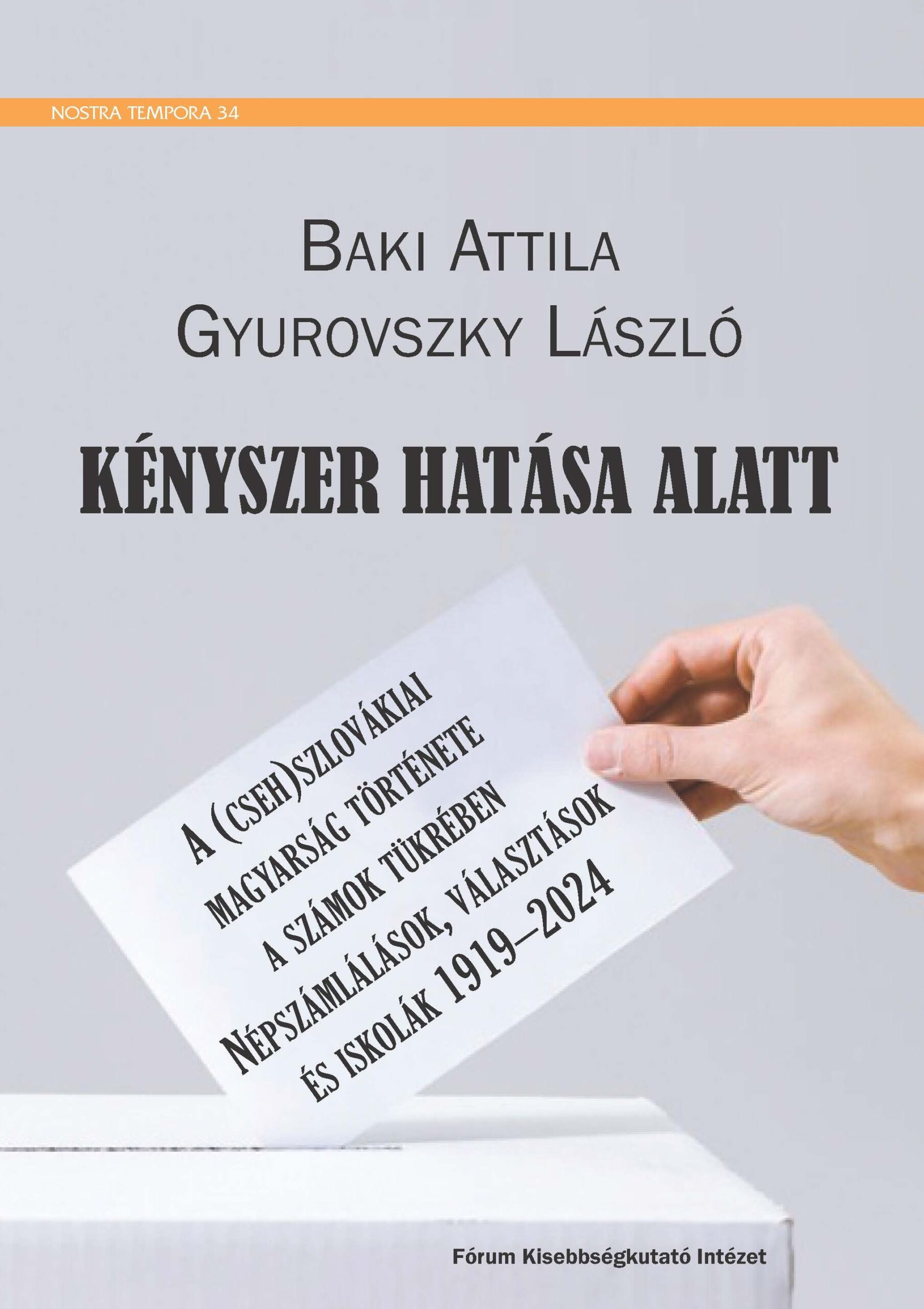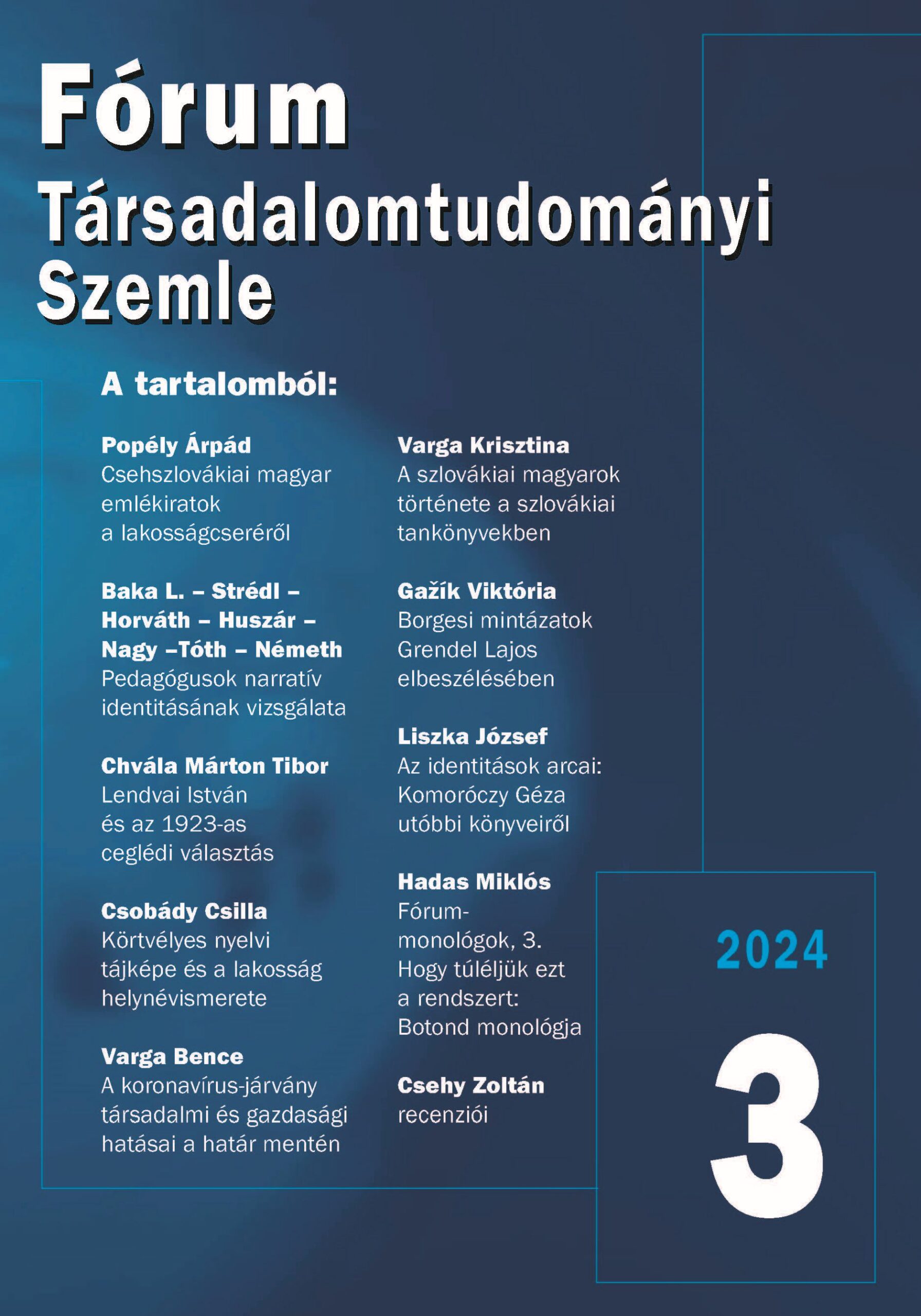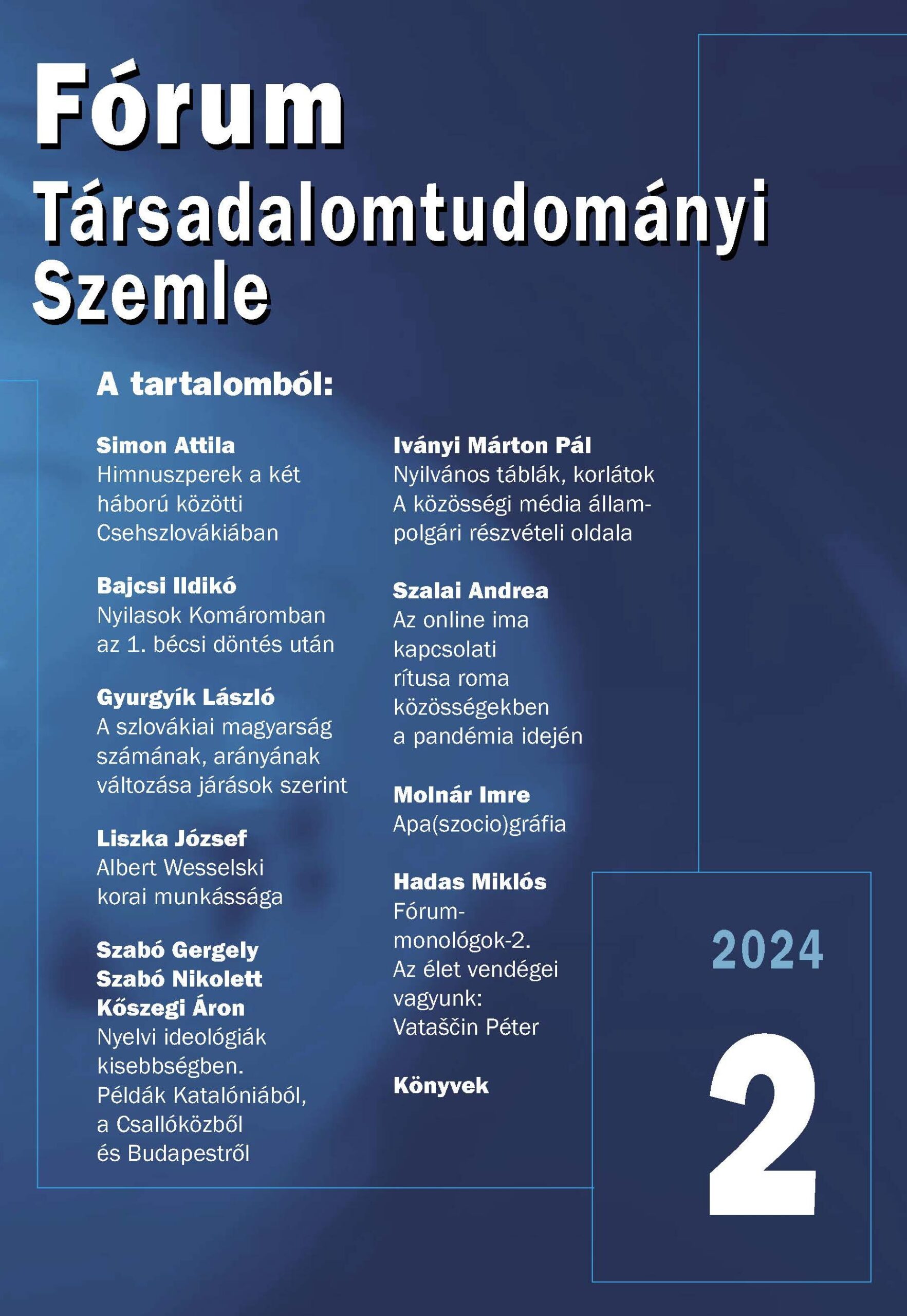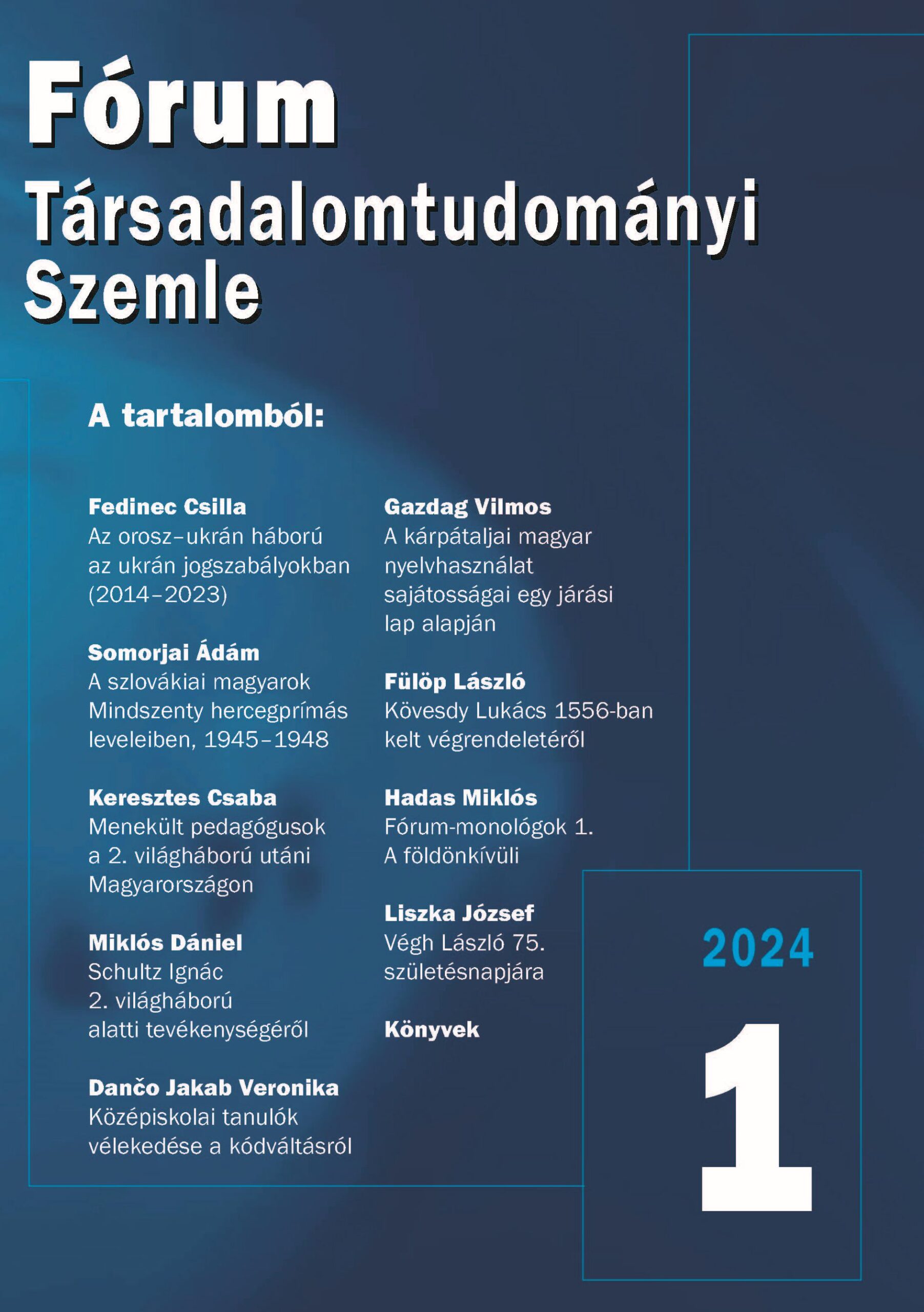Language (Human) Rights, Violations and Security Policy in the Context of Russia’s War Against Ukraine
Russia has already used the issue of linguistic and nationality rights of the Russian minority in Ukraine as a pretext in 2014, when it invaded Crimea and supported the breakaway regions of eastern Ukraine. Russian President Putin’s speech immediately prior to the launch of the war against Ukraine also emphasises the language issue. This paper looks at the possible link between linguistic (human) rights and their violation and security policy. Using the example of the linguistic rights of the Hungarian community in Transcarpathia, it examines whether Ukrainian language policy in recent years can be interpreted as a violation of linguistic rights, and also seeks to answer the question of whether there can be a balance between the guarantee of linguistic rights of minorities and security policy.
Archaizing Neologisms of Transcarpathian Hungarian Language Varieties Related to Soviet Party and Collective Life
In the 1900s, the communist ideals of the Soviet Union had a profound impact on all aspects of life. The party leadership, in its efforts to create the ‘Soviet man’, sought to control everything, whether it was public life or the recreational opportunities of its citizens. The same applied, of course, to agricultural and industrial activities. Here the party leadership, in a spirit of constant competition, sought to achieve the best possible results, to prove to everyone that there was always room for improvement. The ideological and economic impact was, of course, not only felt in people’s daily lives, but also in the language they used. Many new concepts, objects, work processes and occupations were born, which had to be given a new name and became established in the language of minorities, including the Hungarian minority in Transcarpathia, as words without equivalents, in the form of direct borrowing. A significant number of these words are acronyms typical for the period in question and in historical and ethnographic research are nowadays mainly referred to as Sovietisms or historicisms. Of course, as stated in the title, this work is primarily concerned with those Russian and Ukrainian loanwords (or more precisely, some of them) that are also rooted in the Transcarpathian Hungarian language varieties, which were strongly connected to the political and economic institutions of the Soviet era, and as such, are gradually archaizing since the fall of the regime, as the generation of active workers grow older and die off.
Contemporary Press of the Negotiations in Komárno and the First Vienna Award
The aim of our study is to briefly summarise the course of the negotiations in Komárno and the First Vienna Award, and to give an insight into how the Hungarian and Slovak press of the time commented on the events. The Hungarian press blamed the Slovak party for the breakdown of the negotiations, saying that the Czechoslovak party was trying to stall for time and that it had not offered Hungary a number of territories with a predominantly Hungarian-speaking population. The Slovak papers, on the contrary, blamed the Hungarian party for the breakdown of the negotiations because of its excessive territorial claims. The Hungarian newspapers reported the outcome of the First Vienna Award with great joy and enthusiasm, while the Slovak press, of course, was negative. Although the First Vienna Award resulted in an ethnically much more equitable borderline between Hungary and Slovakia than it was before, the “Hungarian times” did not last long in the life of the Hungarian minority in southern Slovakia. After the Second World War, the First Vienna Award was annulled, as was the Munich Agreement. The Paris Peace Treaty, signed by Hungary on 10 February 1947, reaffirmed Hungary’s Trianon borders, which once again put the Hungarians in Slovakia in a disadvantaged and minority position.
The Perception of Milan Hodža During the Second World War in Hungary
Milan Hodža was a prominent figure in Czechoslovak emigration during the Second World War, having previously served as a member of the Hungarian Chamber of Deputies from 1905 to 1910 and as the first ethnic Slovak prime minister of Czechoslovakia from 1935 to 1938. In the Hungarian public discourse, the personality, ideas, and activities of this Slovak politician have remained a topic of discussion to this day. The aim of this essay is to outline the opinions of individual Hungarian politicians, publicists, and journalists on Milan Hodža in various journals. The paper is divided into three sections (the perception of Hodža’s personality, the evaluation of his book Federation in Central Europe, and the reactions to the politician’s death) and aims to shed light on the image of Milan Hodža in Hungary during the Second World War, which often sought to act as a counterpoint to the perception of Edvard Beneš.
The Emergence of the Western Foreign Community in Japan
For many centuries, Japan had little experience of coexistence with foreign nationals or major national minorities. In the 16th century, however, it established fairly intensive contacts with some European states, which led to relatively strong links with international trade and the mass spread of Christianity within the country. However, it was the success of the new religion that led the central authorities in the country to gradually close Japan to foreigners in the first half of the 17th century. The small Dutch community was strictly confined to the small island of Dejima in Nagasaki, and its life in Japan was tightly regulated. It was not until Perry’s mission and the forcing of the establishment of official relations between Japan and the Western powers that the conditions were set for the emergence of a wider foreign community in Japan. This was concentrated primarily in the newly established port of Yokohama, which became an important seat of the foreign enclave in Japan. While on the one hand foreigners enjoyed considerable privileges in the country due to the existence of unequal treaties, on the other hand they had to face considerable problems, especially xenophobia on the part of part of the Japanese population. Despite this, they became a permanent part of the economic, political, and cultural scene here, and their influence on the development of Japan in the Meiji era is undeniable.



